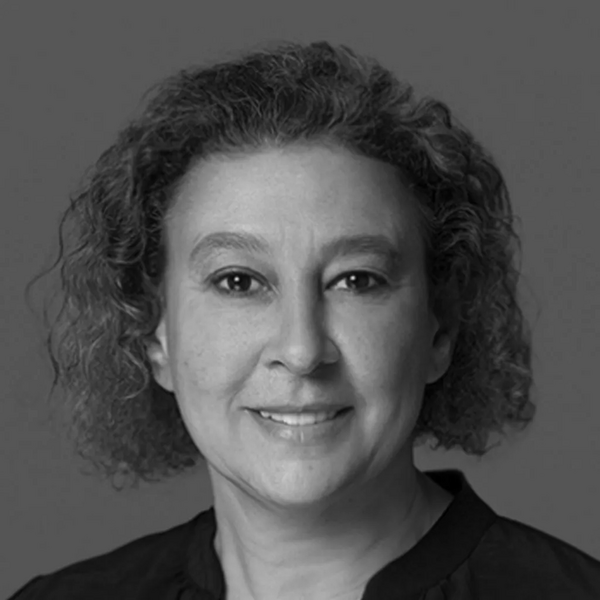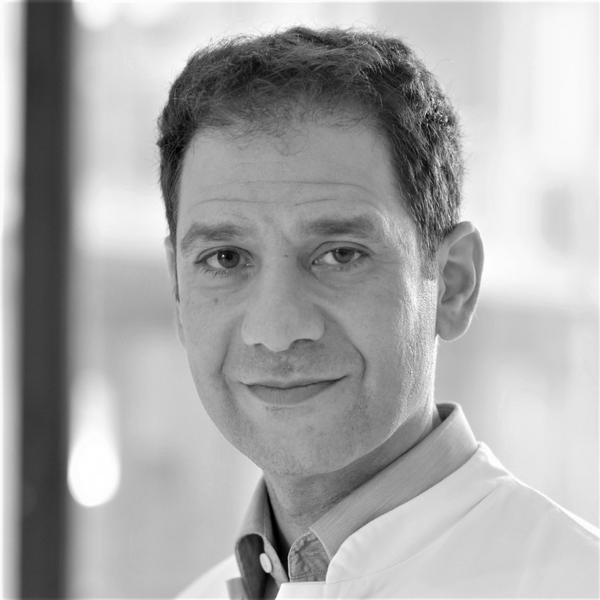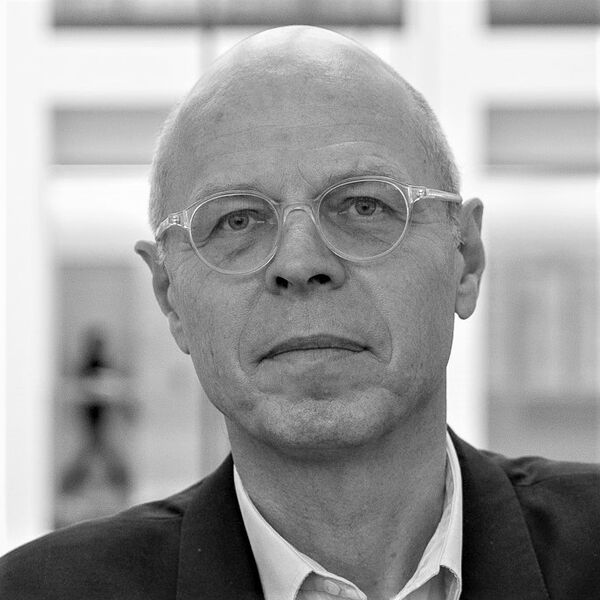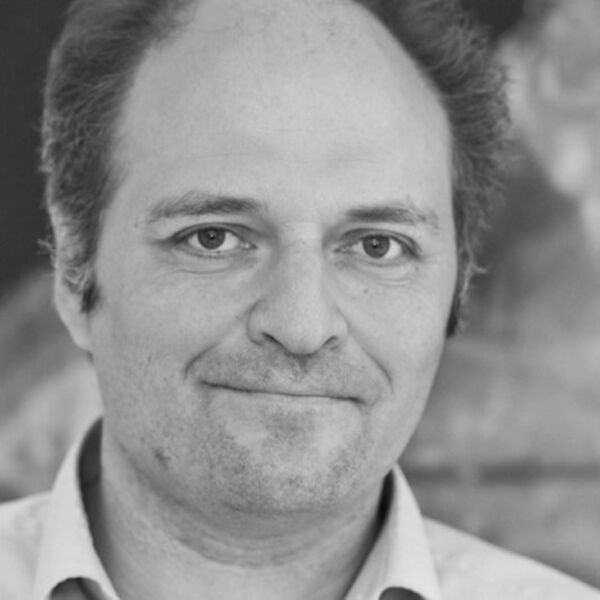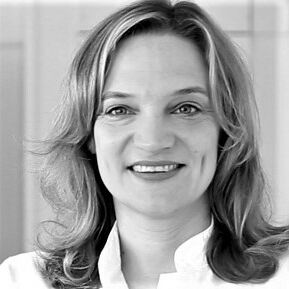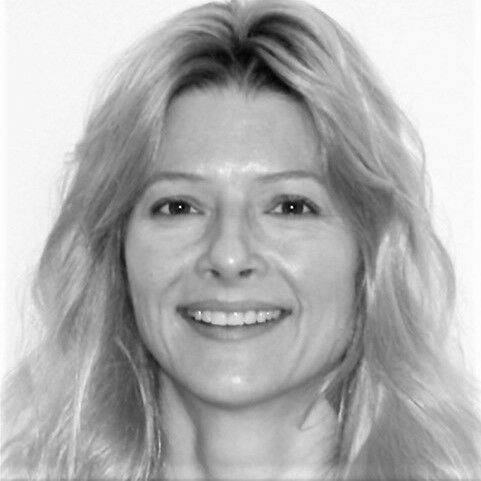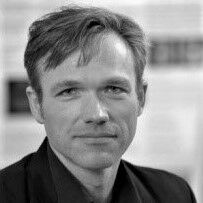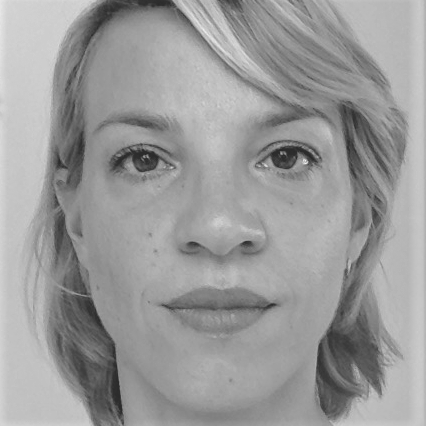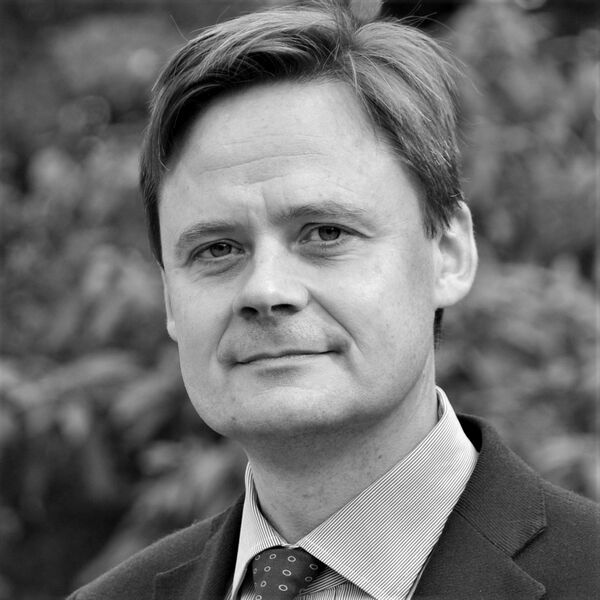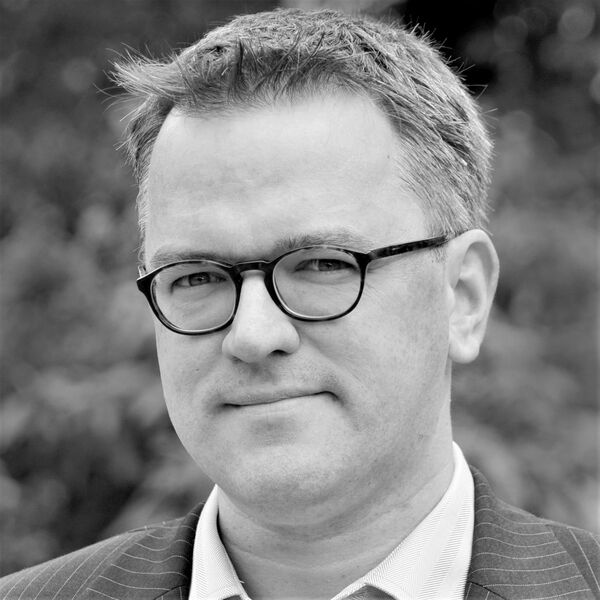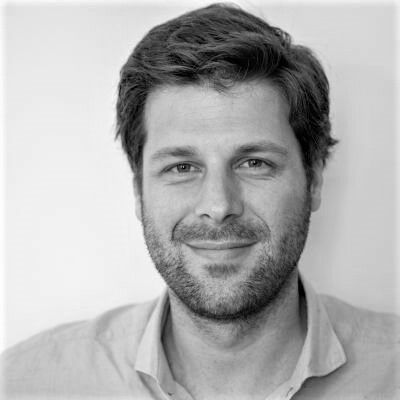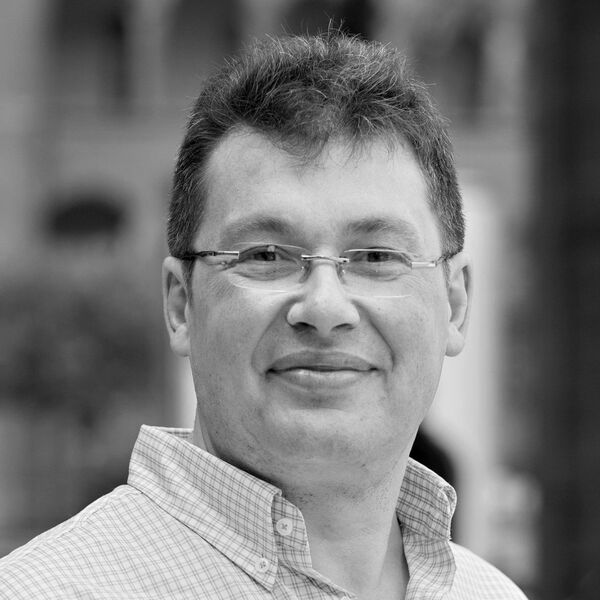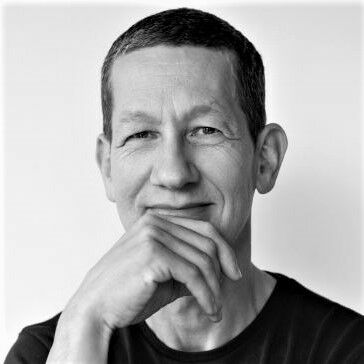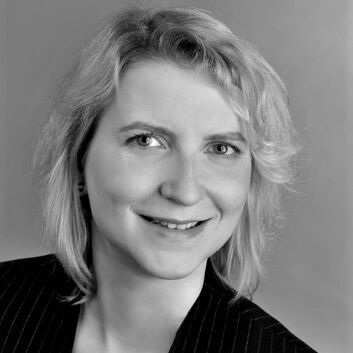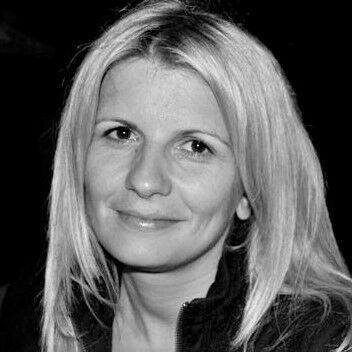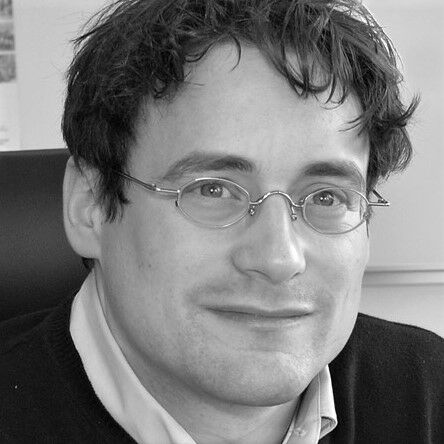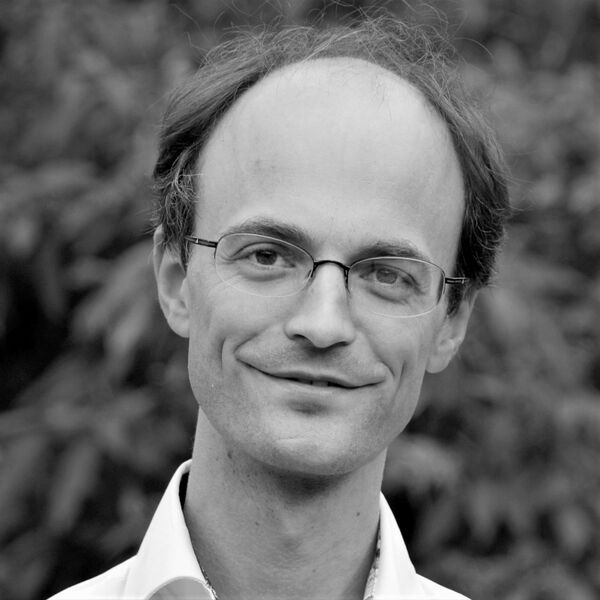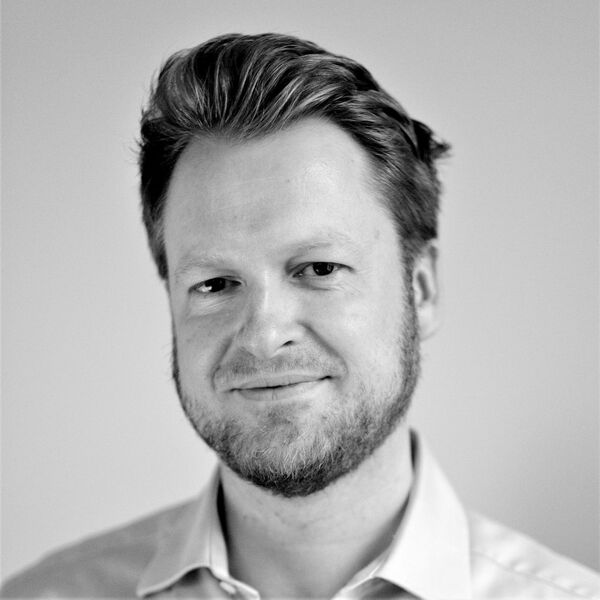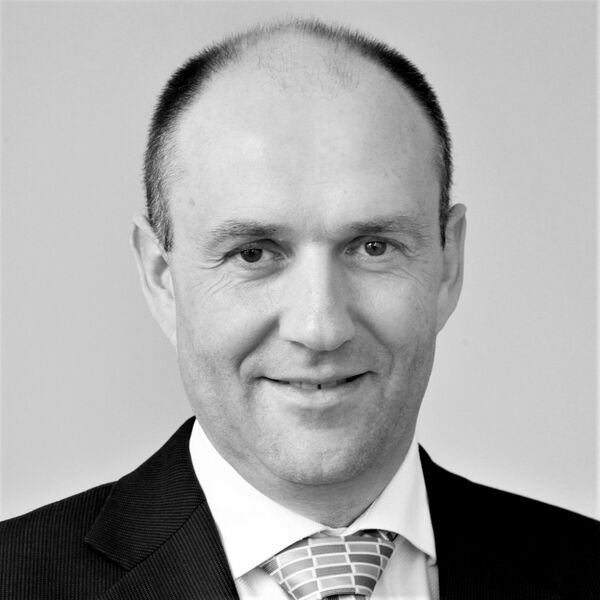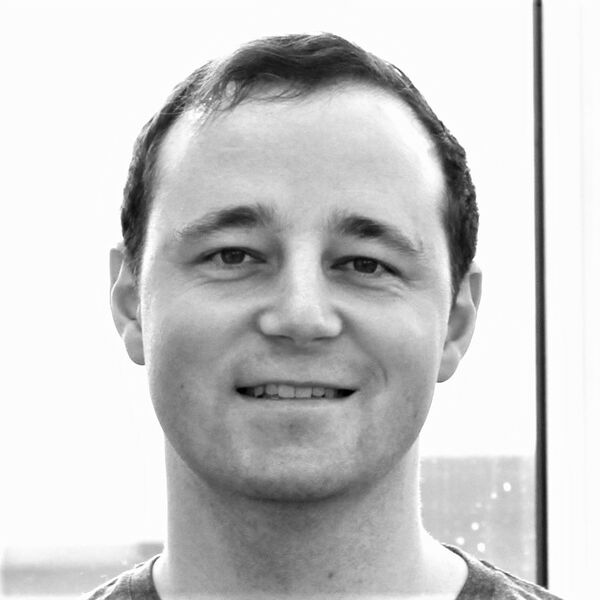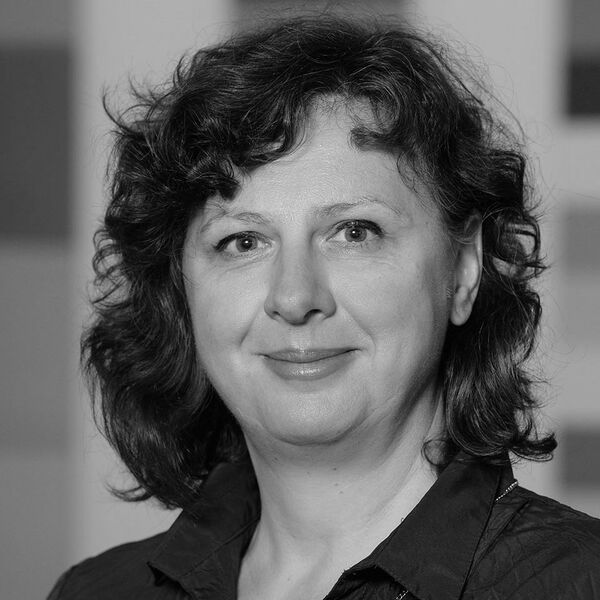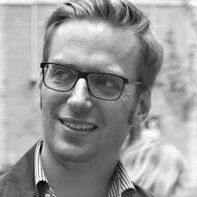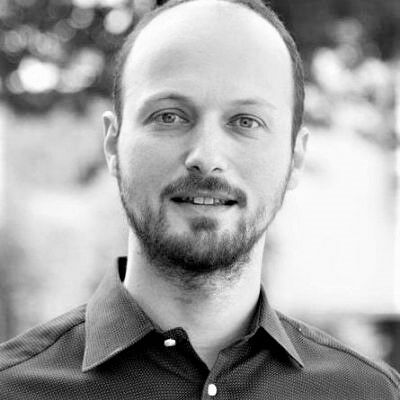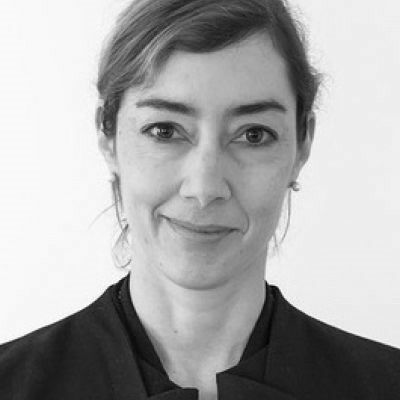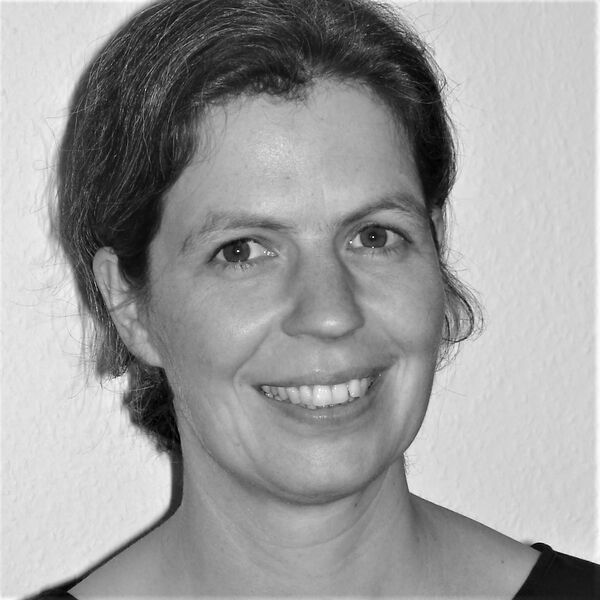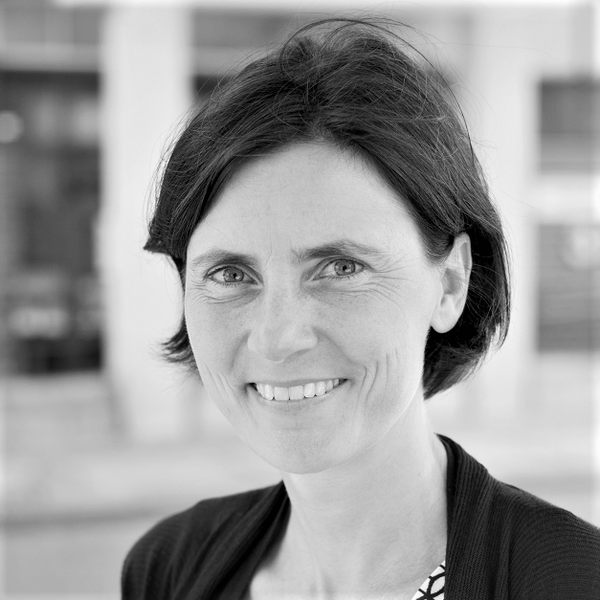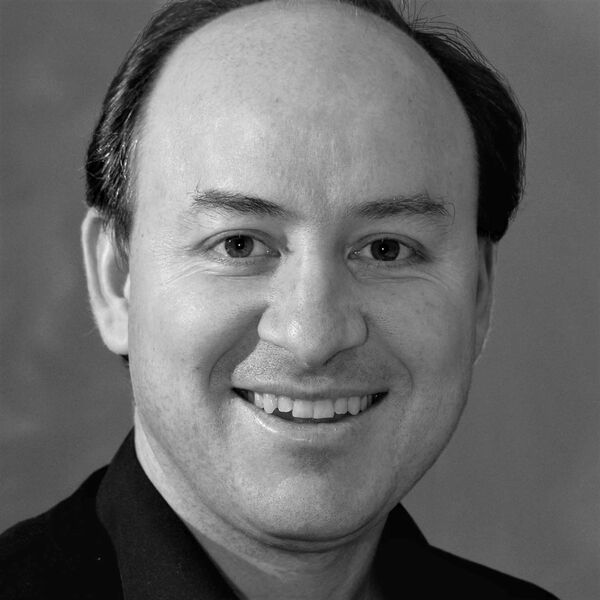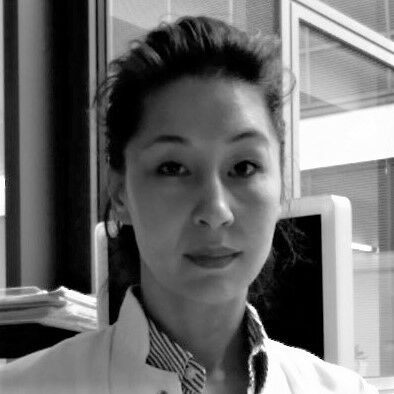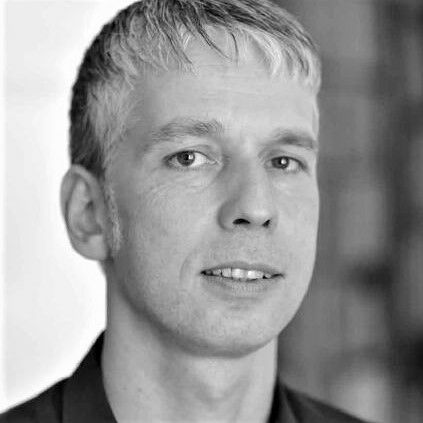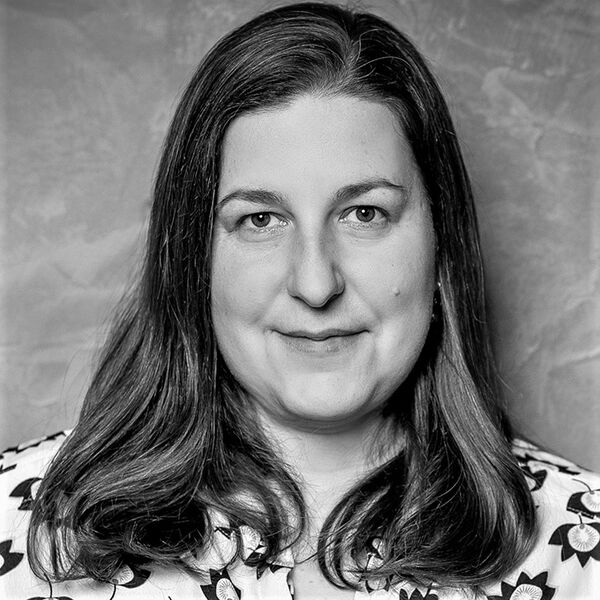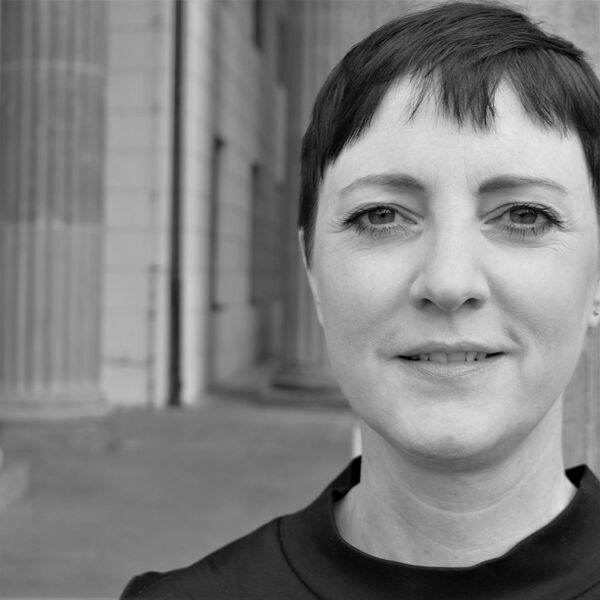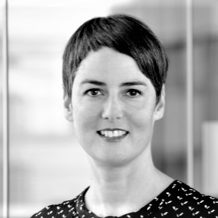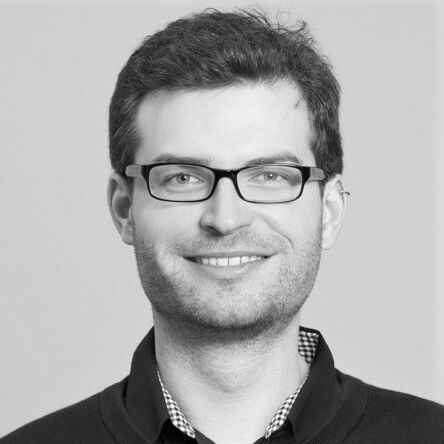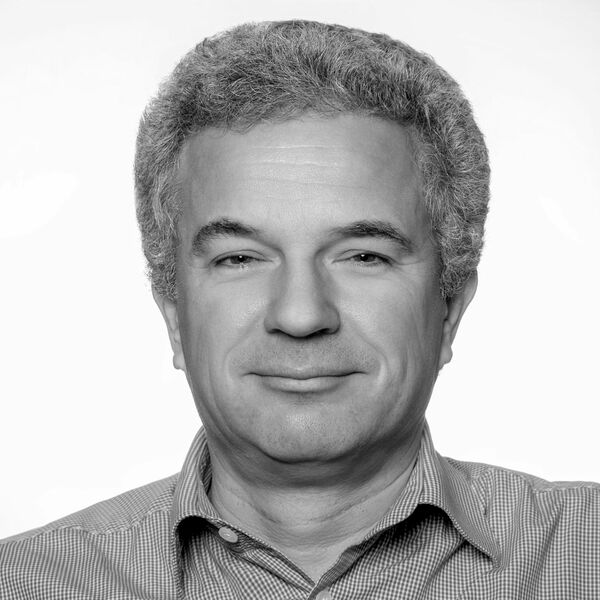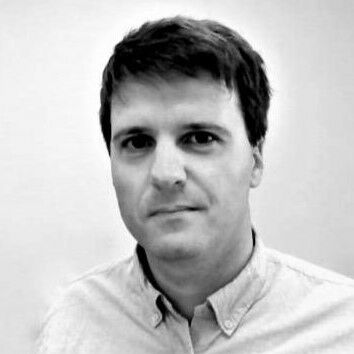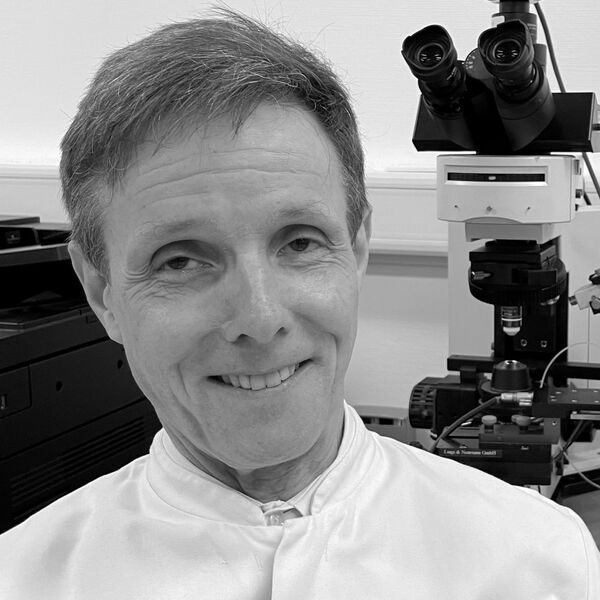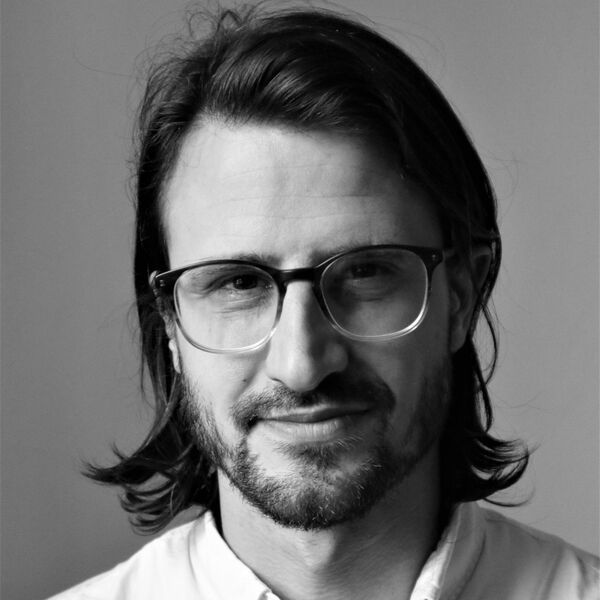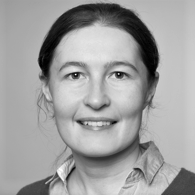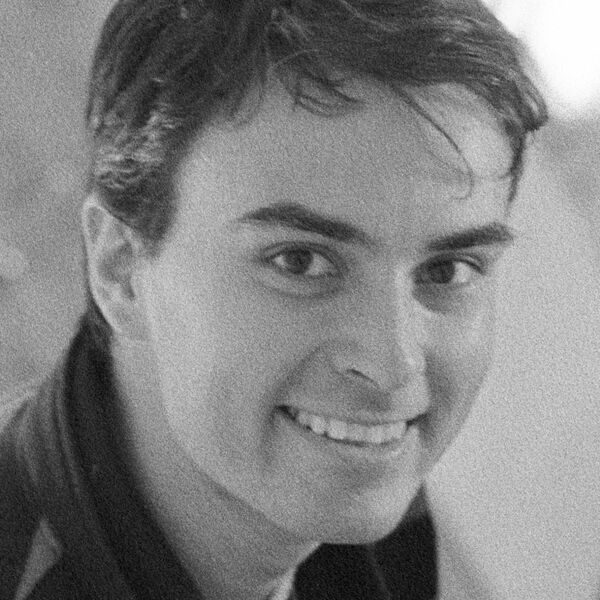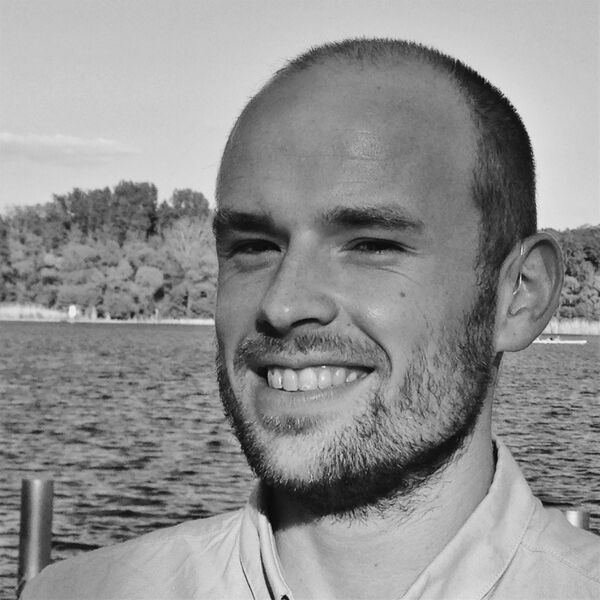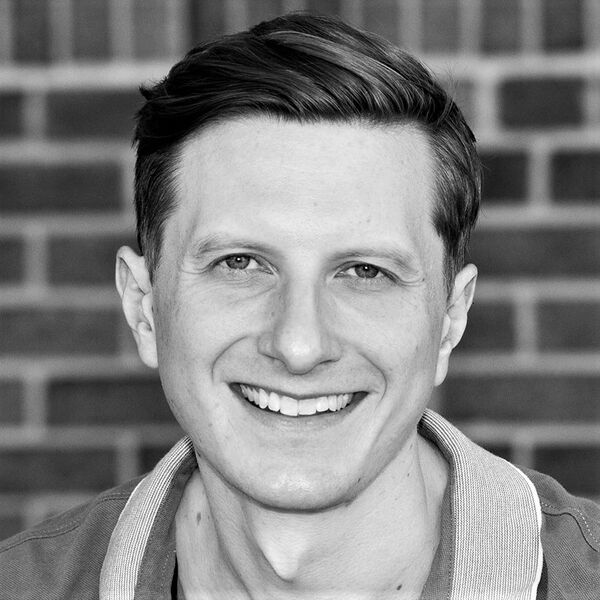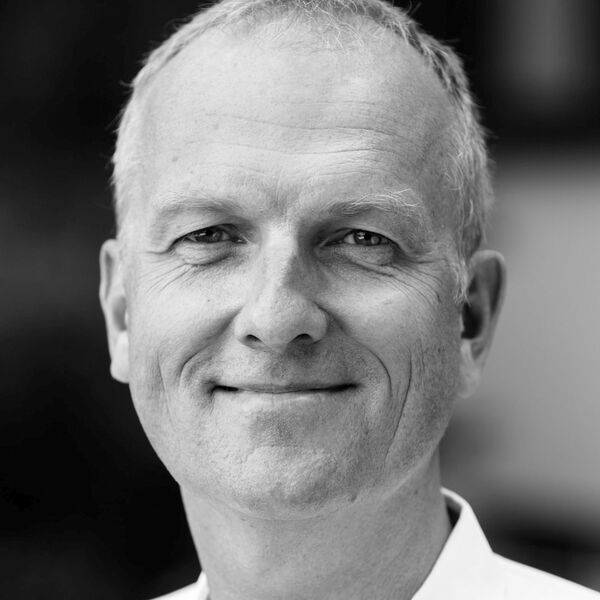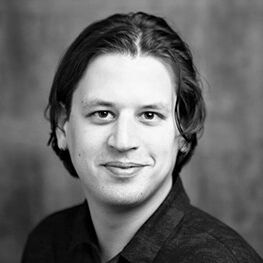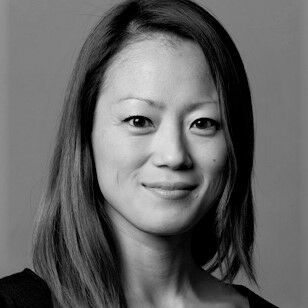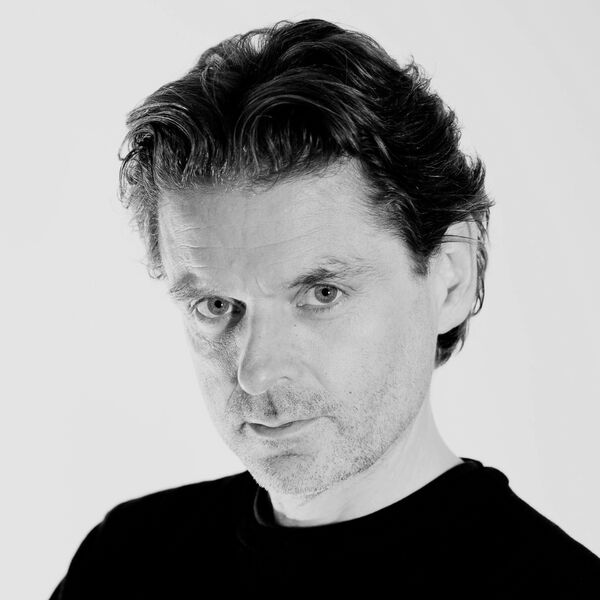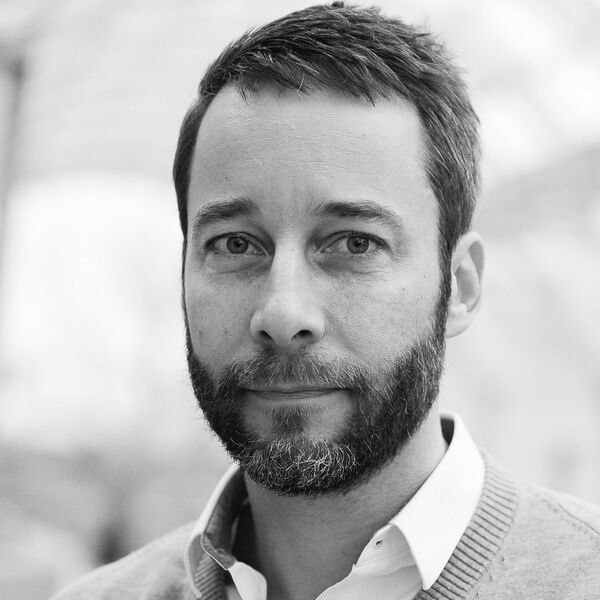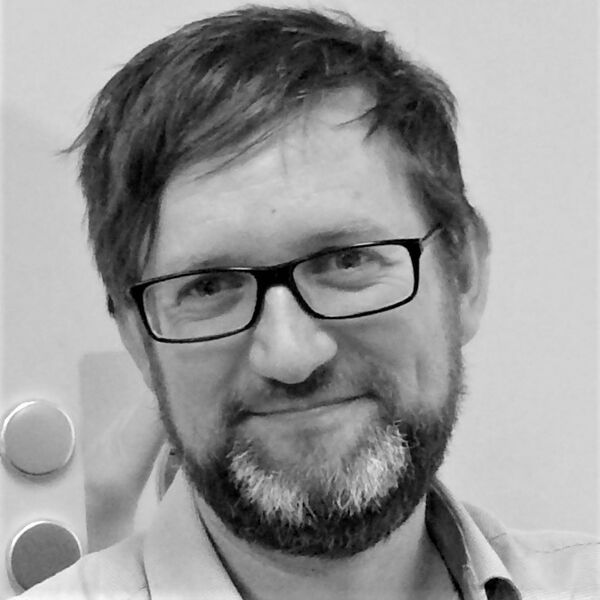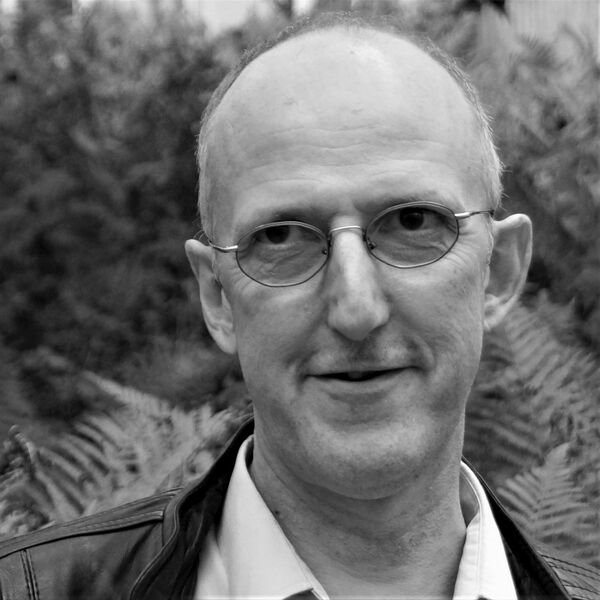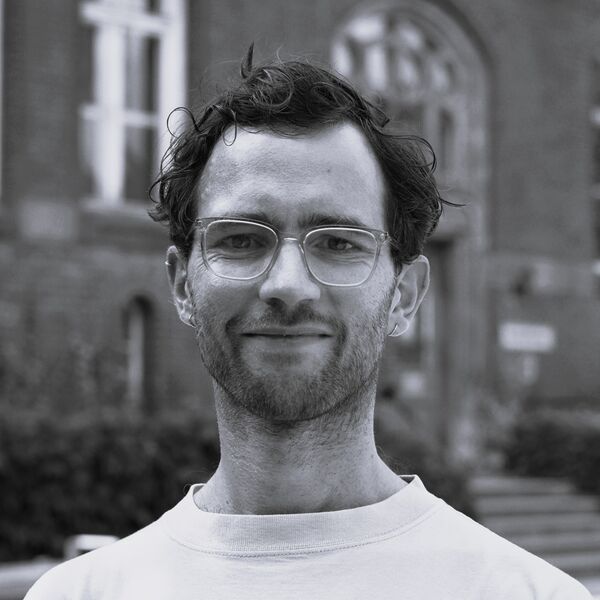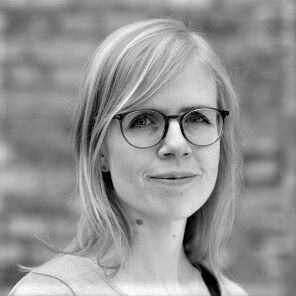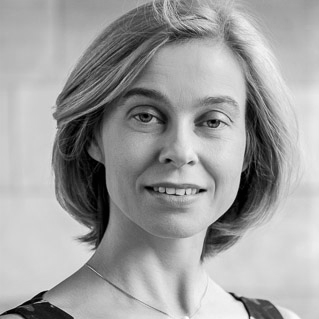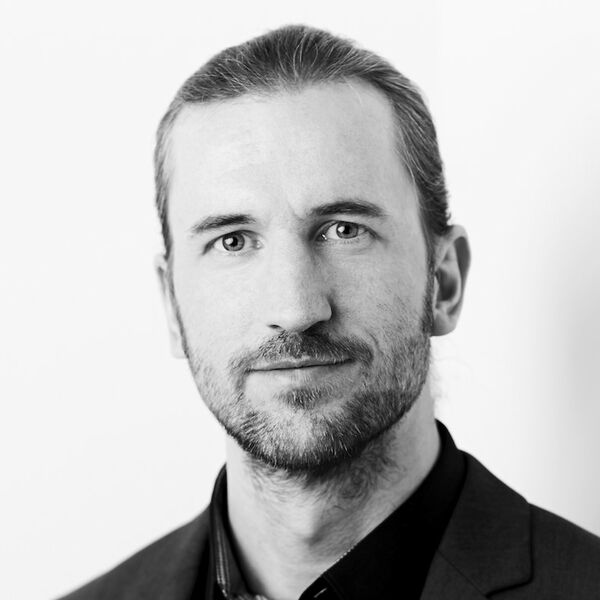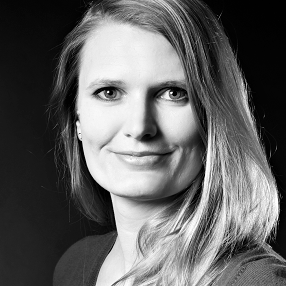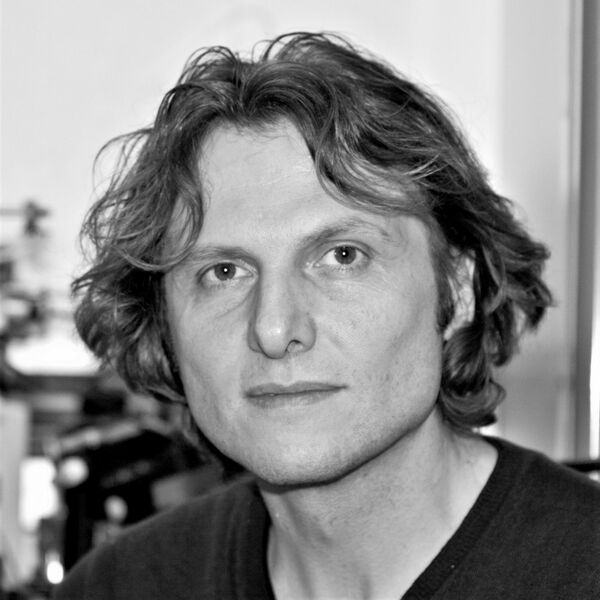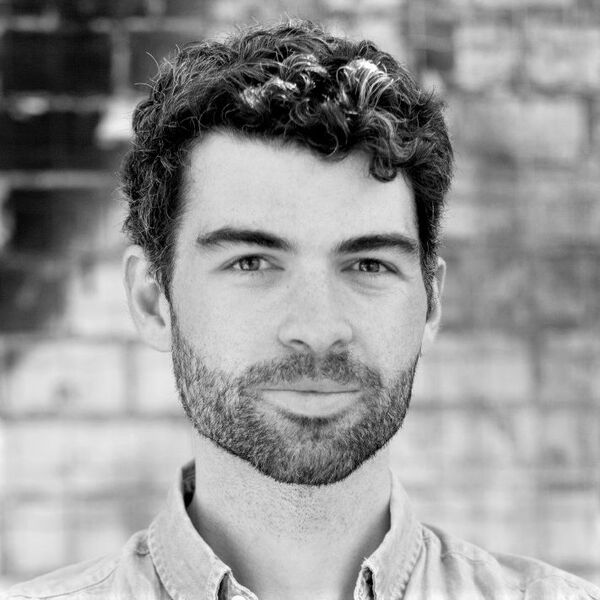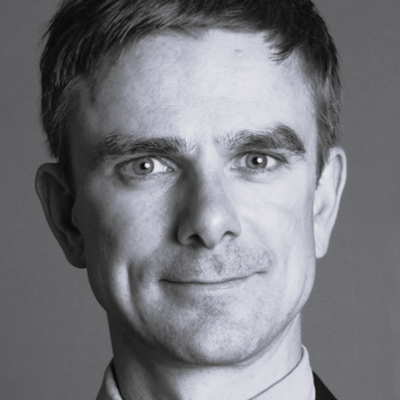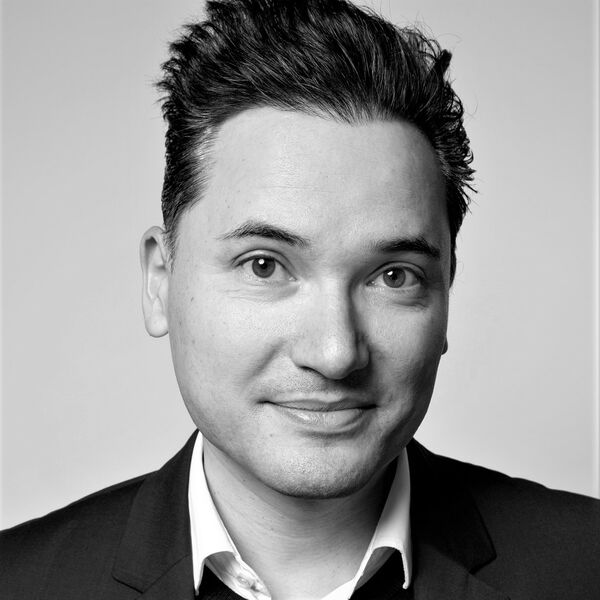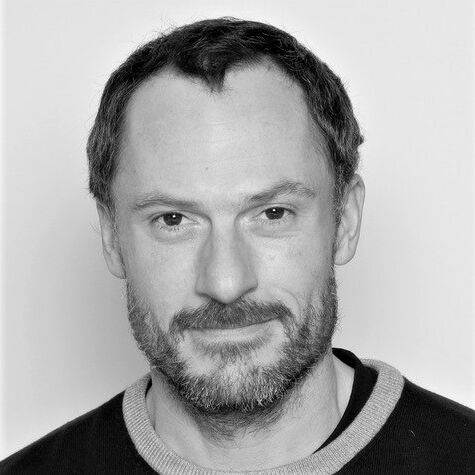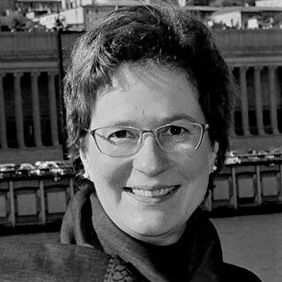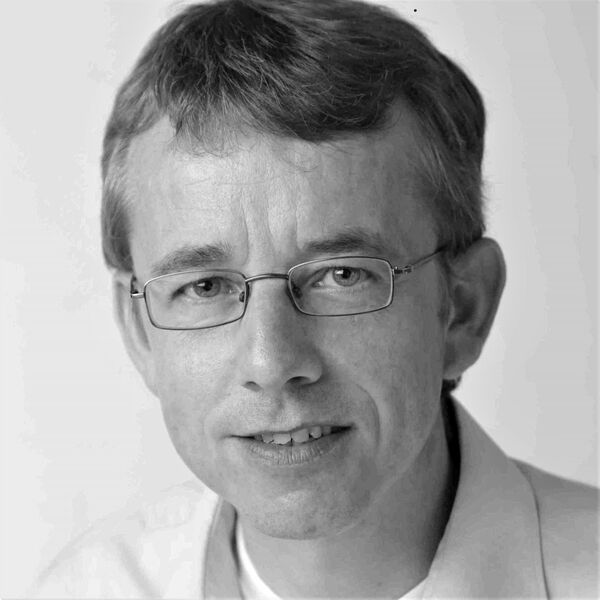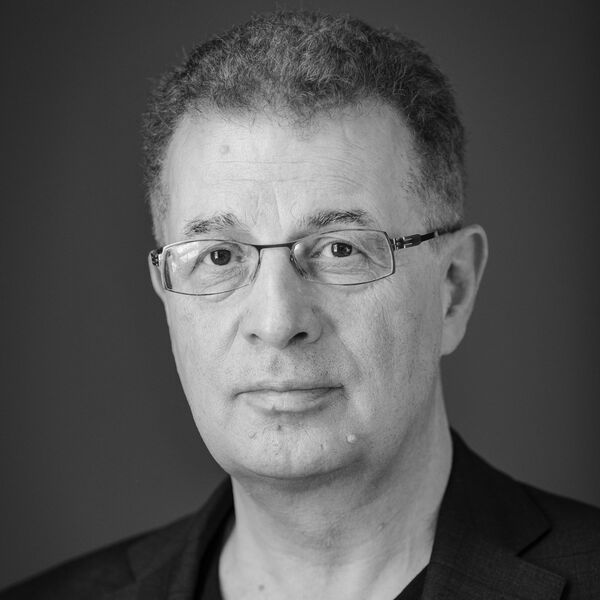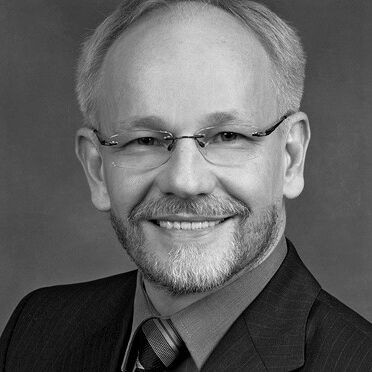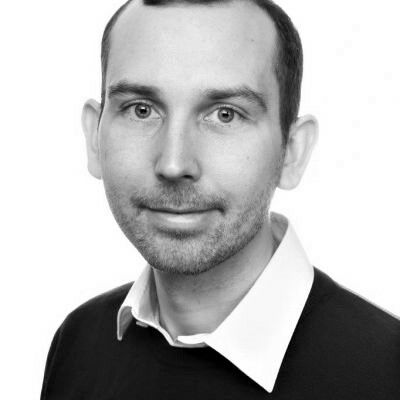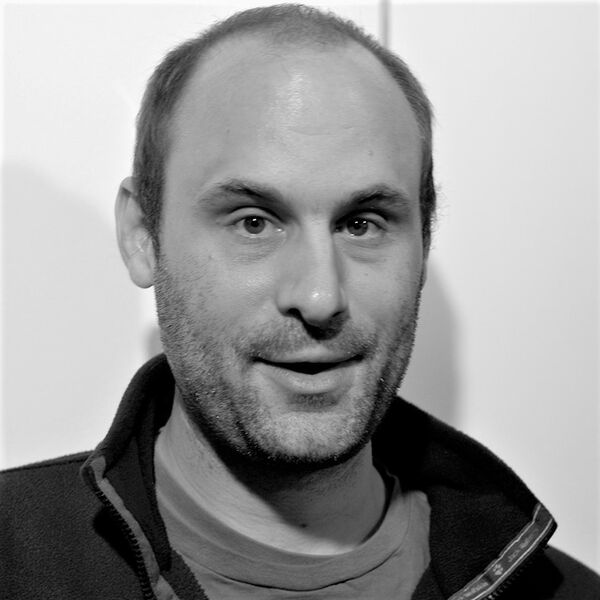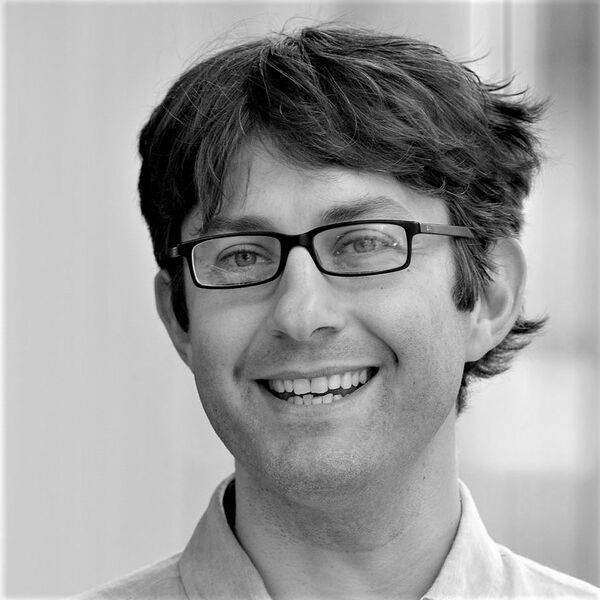Humboldt-Universität zu Berlin
Cognitive neuroscience
Linguistics/language
In our research we employ neuroscientific methods, predominantly EEG, to explore the many facets of semantic processing and their interactions with other fundamental cognitive functions. We focus on meaning-based language production/comprehension, the interplay between semantics, vision and language, as well as the impact of emotional, social and semantic factors on perception and perception-related functions such as visual consciousness and mental imagery.
Charité - Universitätsmedizin Berlin, Department of Psychiatry, Center for Affective Neuroscience
Clinical neuroscience/translation
Cognitive neuroscience
Our research group aims at a better understanding of human emotions and affective disorder. To do so, we mainly use multimodal approaches including structural, functional and metabolic imaging, neurophysiology, and brain stimulation techniques. We mainly focus on variations of normal behavior as well as on psychiatric disorders such as depression and postraumatic stress disorder and try to shed light on the role of inherent, cultural, and environmental factors in such conditions.
Charité - Universitätsmedizin Berlin, Institute of Sexology and Sexual Medicine
Clinical neuroscience/translation
Cognitive neuroscience
Neurobiology research can serve as a prerequisite for possible developments of new tools for the clinical diagnosis of pedophilic sexual preferences and treatment of sexual deviances. Our resesearch aims at understanding sex abusers’ and pedophiles’ brain functioning to help to predict benefits from treatment in order to improve treatment strategies, to prevent sexual abuse and to minimize recidivism. My research is focused on abnormalities in brain function, brain structure and neurobiological mechanisms underlying pedophilia and sexual offending against children.
Charité – Universitätsmedizin Berlin, Department of Psychiatry and Neurosciences
Clinical neuroscience/translation
Cognitive neuroscience
Neural mechanisms of emotions and their interaction with so-called cognitive processes (e.g., self-referential processing, self-control, self-awareness, social cognition, triadic social interactions, decision-making) in healthy individuals and patients with psychiatric disorders (depression, bipolar disorder, substance use disorder, borderline disorder).
Max Delbrück Center for Molecular Medicine, Developmental Biology & Signal Transduction
Molecular and cellular neurobiology
The lab focuses on functional analysis of genes important in development and stem cells, concentrating on muscle, the nervous system and endocrine organs. We observe that many genes control both developmental and regenerative processes in the adult. For our work, we use mouse genetics and stem cells culture, and define molecular mechanisms by genomic and proteomic technologies.
Freie Universität Berlin, Department of Education and Psychology, Neurocomputation and Neuroimaging Unit
Cognitive neuroscience
Clinical neuroscience/translation
Action-perception-loop, i.e. interplay between conscious perception, working memory, decision-making, and action; body representation; methods development, incl. model-based EEG/fMRI and multimodal neuroimaging.
Technische Universität Berlin, Neurotechnology Group
Cognitive neuroscience
Clinical neuroscience/translation
The lab focuses on functional analysis of genes important in development and stem cells, concentrating on muscle, the nervous system and endocrine organs. We observe that many genes control both developmental and regenerative processes in the adult. For our work, we use mouse genetics and stem cells culture, and define molecular mechanisms by genomic and proteomic technologies.
Charité - Unversitätsmedizin Berlin, Department of Psychiatry and Neurosciences
Cognitive neuroscience
Clinical neuroscience/translation
Our research aims to understand the neural basis of flexible behavior.
We focus on identifying neural activity patterns that reflect ongoing computations during learning and decision-making, are shaped by past experiences, and govern social interaction. A key area of interest is the long-term impact of early life adversity—a major risk factor for mental disorders—on cognitive function and neural representations. To address these questions, we use high-density recordings, such as Neuropixels probes, along with tools to manipulate and identify critical brain areas and cell types.
Max Delbrück Center for Molecular Medicine, Experimental and Clinical Research Center; Charité - Universitätsmedizin Berlin
Molecular and cellular neurobiology
Clinical neuroscience/translation
Multiple sclerosis (MS) is the most common chronic inflammatory demyelinating disease of the human CNS. MS exhibits an extraordinary heterogeneity of clinicaal features, genetic and environmental risk factors and mechanisms of tissue damage. Our research aims to identify cellular heterogeneity of the myeloid cell compartment including monocytes, macrophages and microglia, and their phenotypic and functional alteration during MS pathology. Mainly, we employ mass cytometry and imaging mass cytometry to characterize myeloid cells in different compartments - the peripheral blood, CSF & brain.
Humboldt-Universität zu Berlin
Behavioral neuroscience
Molecular and cellular neurobiology
My research group is active in the field of animal physiology/systems neurobiology and neural computation with the following research areas: animal play and social touch, elephant behavior and neurobiology, high-resolution X-ray imagining and method development, active touch and object recognition, neural basis of kinship behavior, cortical organization, cellular basis of sensations and movement generation.
Freie Universität Berlin, Institute of Pharmacology and Toxicology
Molecular and cellular neurobiology
Clinical neuroscience/translation
My research is inspired by multidisciplinary approaches evaluating the role of the immune system and de- and regeneration of neurons in diseases of the CIS. We focus on epilepsy as one of the most common chronic neurological diseases. Seizures can be triggered by various causes, such as infections and intoxications, genetic predispositions, stroke, and head trauma. My work is oriented towards identifying new pharmacological targets that could alter processes that are contributing to seizure generation and brain pathology, such as synaptic reorganization, neurodegeneration, and inflammation.
Charité – Universitätsmedizin Berlin, Department of Medical Psychology
Clinical neuroscience/translation
Cognitive neuroscience
My research focuses on developmental programming of health and disease risk, with an emphasis on the effects of stress and stress-related biological (maternal-placental-fetal endocrine, immune, genetic) and behavioral (nutrition, physical activity, smoking/drug use) processes during human pregnancy and fetal brain development as well as other health-related infant outcomes. I have expertise in characterizing maternal-placental-fetal stress biology, the quality of key features of the postnatal environment, early neurodevelopmental trajectories and in pediatric neuroimaging.
Freie Universität Berlin, Department of Education and Psychology, Biological Psychology and Cognitive Neuroscience
Cognitive neuroscience
My main interest is human visual cognition – that is, I want to know the brain's representations and algorithms underlying vision. In particular, I want to find out (1) how the brain transforms sensory into abstract representations, (2) the dependency of those representations on task, and (3) the plasticity of the underlying neural architecture studying visual cortex in the blind. I use a combination of methods (fMRI, M/EEG, deep neural networks), and analyze data in an integrated framework using with machine learning techniques and representational similarity analysis.
German Center for Neurodegenerative Disease (DZNE)
Molecular and cellular neurobiology
Clinical neuroscience/translation
Memory encoding and forgetting require strengthening and weakening of synapses. Synapse weakening is an early feature of neurodegenerative disease, and leads to memory loss when it occurs in the hippocampus. Our team identifies and manipulates molecules that strengthen or weaken synapses, to counteract neurodegenerative disease. To do this, we use a combination of live imaging, nanoscopy, electrophysiology, biochemistry, genomics, and behavior. Our goal is to target the molecular “memory signature”, in brain slices and hIPSC-derived neuronal networks, to discover cognition-enhancing compounds.
Max Delbrück Center for Molecular Medicine
Molecular and cellular neurobiology
Clinical neuroscience/translation
We try to understand the mechanisms underlying the cardiac phenotype caused by Huntington´s disease and if the current medications increase the risk of long QT syndrome depending on the genetic cause of the disease. In order to understand the manifestation of the disease we are planning to utilize IPSC derived cardiomyocytes derived from HTT patient specific lines as well as subsequently derived isogenic control lines.
Charité – Universitätsmedizin Berlin, Department of Experimental Neurology, Center for Stroke Research Berlin
Clinical neuroscience/translation
Molecular and cellular neurobiology
Regulation of cerebral blood flow and metabolism; cerebral ischemia and endogenous neuroprotection; accute brain inflammation, brain - immune interaction; brain imaging; quality and predictiveness of translational neuroscience; meta-research.
Charité – Universitätsmedizin Berlin, Department of Experimental Neurology, Center for Stroke Research Berlin
Clinical neuroscience/translation
Translation of stroke research from bench to bedside, intensive care medicine, ischemic/hemorrhagic stroke, migraine research, in vivo rodent models of ischemic and hemorrhagic stroke, human and rodent brain slices, electrophysiology/neuromonitoring/imaging technology in animals/human.
Humboldt-Universität zu Berlin, Berlin School of Mind and Brain, Social Cognition Group
Cognitive neuroscience
Clinical neuroscience/translation
Social cognition, empathy, theory of mind, emotion and face recognition; development and validation of tests and interventions for socio-emotional competencies and empathy; decision making in social contexts; kinesthetic empathy and socio-emotional effects of synchronization; neuronal correlates of social cognition using functional and structural MRI; social cognition dysfunctions in psychiatric disorders (e.g. autism spectrum conditions, personality disorders, schizophrenia).
Charité – Universitätsmedizin Berlin, Department of Biochemistry
Molecular and cellular neurobiology
Clinical neuroscience/translation
Our research focuses on the signalling mechanisms that control the dynamic reorganisation of the cytoskeleton during the establishment and maintenance of synaptic connections in the context of brain development and neuronal disorders/disease.
Charité – Universitätsmedizin Berlin, Department of Neurology and Experimental Neurology
Clinical neuroscience/translation
Molecular and cellular neurobiology
My group is active in the field of stroke research with the following major areas: preventive vascular mechanisms (endothelial function, physical activity, pharmacology); mechanisms of cell death (cell cycle activation, DNA damage and repair, apoptosis); regeneration and functional outcome (cellular plasticity, neurogenesis); clinical studies (stroke unit, telemedicine).
Charité – Universitätsmedizin Berlin, Department of Medical Psychology
Clinical neuroscience/translation
Molecular and cellular neurobiology
The long-term consequences of exposure to excess stress on the initiation and progression of age-related diseases are well established. In this context, our research focuses on the intrauterine period of life that represents among the most sensitive developmental windows at which time the effects of stress may be transmitted inter-generationally from a mother to her as-yet-unborn child, and on the elucidation of biological mechanisms underlying such effects.
Charité – Universitätsmedizin Berlin, Center for Stroke Research Berlin, CSB Neuroradiology
Clinical neuroscience/translation
Charité – Universitätsmedizin Berlin, Deptartment of Neurology
Clinical neuroscience/translation
Cognitive neuroscience
Our research focuses on the clinical and cognitive neuroscience of memory and memory disorders. We are specifically interested in the pathophysiology of memory deficits in patients with inflammatory brain disorders affecting the medial temporal lobes, including viral and autoimmune encephalitis and patients with paraneoplastic neurological syndromes. We use structural and functional MRI, neuropsychological assessments and psychophysiological measures to investigate the neural mechanisms of memory impairments in these disorders and develop diagnostic and prognostic imaging biomarkers.
Max Planck Institute for Human Cognitive and Brain Sciences, Department of Neuropsychology
Cognitive neuroscience
The main goal of our research is to identify the various subcomponents of language network in the brain and to investigate their interaction. In order to understand the dynamic organization of the language processor (i.e, the "how"), we use behavioral measures and electrophysiological methods (EEG, MEG). The neuroanatomical organization of language (i.e., the "where") is targeted by the investigation of neurological patients with specific brain lesions and the use of new brain imaging methods such as functional and structural magnetic resonance imaging (MRI).
Charité - Universitätsmedizin Berlin, Institute of Neurophysiology
Molecular and cellular neurobiology
Analyisi of cortical microcircuits in acute brain slices of rodents and humans using multi-neuron patch-clamp and HDMEA recordings. Special emphasis is given to structure-function relationships and diversity of neuronal subtypes and their synaptic interactions.
Max-Delbrueck-Center for Molecular Medicine, Integrative Vascular Biology Laboratory
Molecular and cellular neurobiology
Our group investigates the fundamental principles and regulation of vascular formation and adaptation in health and disease. Multiple connections exist between vascular biology and neuroscience, starting with shared principles of axonal guidance and vascular guidance, many examples of co-patterning and shared molecular mechanisms, the control of the neurovascular unit, the blood brain barrier, etc.. One of the current research foci is the understanding of the mechanisms of vascular adaptations to changing flow conditions, as for example after stroke, and the integrative mechano-sensing of endothelial cells and the metabolic regulation of endothelial mechano-responses and signalling.
MaxCharité – Universitätsmedizin Berlin, Department of Experimental Neurology, Center for Stroke Research Berlin
Molecular and cellular neurobiology
The focus of our research is on experimental stroke research with projects ranging from acute stroke protection to chronic stroke outcome. Our projects include neuroinflammation (myeloid cell diversity after stroke), the interaction between stress-related disorders and stroke outcome (psychosocial stress), systemic effects of stroke (e.g. brain-heart-interaction) and regenerative processes including angiogenesis and neuronal plasticity.
Charité - Universitätsmedizin Berlin, Institute of Neurophysiology, Cellular Network Physiology Research Group
Molecular and cellular neurobiology
Cognitive neuroscience
The goal of our research is to understand how information is processed and encoded in the brain. We use a combination of electrophysiological, anatomical and immunohistological approaches to address the following research questions: role of principal cells and interneurons in hippocampal network oscillations; segregation of axonal and somatic activity during fast network oscillation; entorhinal cortex-hippocampal physiology and pathophysiology; impaired hippocampal rhythmogenesis in a mouse model of mesial temporal lobe epilepsy.
Max Delbrück Center for Molecular Medicine, Stem Cell Modeling of Development and Disease
Molecular and cellular neurobiology
Clinical neuroscience/translation
We use embryonic stem cells to model embryo development in vitro and understand cell fate choices during neuromuscular system development. We recently generated spinal cord neurons from a neuromesodermal progenitor population. This approach opens up new opportunities for the study of neuromuscular diseases as it gives unprecedented access to the simultaneous development of both neural and mesodermal tissues in the dish. Our focus is to understand how these tissues are generated and interact in space/time during development with the aim to understand the origins of human neuromuscular diseases.
Charité – Universitätsmedizin Berlin
Cognitive neuroscience
Transforming our world, machine learning has penetrated into domains that have been reserved for human intellect throughout history. In parallel, advances across genetics, biochemistry and microscopy are providing us with ever-increasing access to biological brains. Artificial and biological intelligence emerge from fundamentally different representations of information: analog signals in artificial versus discrete spikes in biological brains. Our research focuses on learning in multi-layered networks of spiking neurons and aims to uncover the learning algorithms running within our brains.
Charité - Universitätsmedizin Berlin, Department of Experimental Neurology, Center for Stroke Research Berlin
Molecular and cellular neurobiology
Clinical neuroscience/translation
We model brain ischemia both in cell culture and in mice. We focus on mechanisms of endogenous neuroprotection and mediators of plasticity and rewiring of networks after focal cerebral ischemia in the long-term. Phenotyping of interventions by gene/ drug delivery, and transgenic models include analyis of behavior and skills training, brain imaging, post-stroke angiogenesis and collaterals, inflammation, network rewiring, transcriptomics, proteomics and high resolution microscopy. Our second focus is glioblastoma and inflammation-targeted personalized therapies using WXS and RNA sequencing.
Leibniz Institut für Molekulare Pharmakologie
Molecular and cellular neurobiology
Cognitive neuroscience
From sensory perception to learning and memory, the functioning of the nervous system is dependent upon communication between neurons. Dysfunction of neuronal signaling results in neurological and neurodegenerative disorders ranging from autism to epilepsy and Alzheimer's disease. The focus of research in the Haucke laboratory is the dissection of the molecular mechanisms of exo-endocytosis and endolyososomal membrane dynamics and its role neurotransmission and neurodevelopment (Kononenko & Haucke, Neuron 2015) as well as in the aging brain.
Charité - Universitätsmedizin Berlin, Berlin Center for Advanced Neuroimaging
Clinical neuroscience/translation
Cognitive neuroscience
Charité - Universitätsmedizin Berlin, Deutsches Rheumaforschungszentrum
Molecular and cellular neurobiology
Clinical neuroscience/translation
My research focuses on how the immune system interacts with tissue-specific cells during inflammatory processes. The lab is particularly interested in elucidating the mechanisms of chronic neuroinflammation. We are analysing the dynamics of immune responses in vivo, using intravital microscopy in various mouse models, with the aim to identify novel therapeutic approaches targeting chronic inflammation.
Charité - Universitätsmedizin Berlin, Bernstein Center for Computational Neuroscience
Cognitive neuroscience
Humboldt-Universität zu Berlin, Experimental Biophysics
Molecular and cellular neurobiology
My group works primarily on the molecular characterization of natural sensory photoreceptors, including flavin-based receptors and unusual microbial rhodopsins. Several of them, including channelrhodopsin that we discovered and intensively characterized, are now widely applied in the neurosciences as optogentic actuators. We are engineering many derivatives with modified absorption, kinetics, and ion- or substrate selectivities and work on neuronal applications and studies in collaborations for example with Matthew Larkum, Andrew Plested, Christian Rosenmund, Dietmar Schmitz.
Charité − Universitätsmedizin Berlin, Charité Center for Health and Human Sciences, Institute of Medical Psychology
Clinical neuroscience/translation
Cognitive neuroscience
My interests combine research on the psychobiology of stress and trauma with a developmental and clinical perspective. I am particularly interested in elucidating the mechanisms involved in the developmental programming of health and disease as a function of early experience, in order to derive novel pathophysiology-driven targets for the prevention and intervention of disorders related to early-life stress.
Charité - Universitätsmedizin Berlin, Department of Psychaitry and Psychotherapy
Cognitive neuroscience
Clinical neuroscience/translation
My group is active in thr field of monoaminergic dysfunction in psychiatric disorders, combining genetic research, and multimodal brain imaging techniques, with the following major areas:monoaminergic dysfunction in neuropsychiatric disorders, e.g. dopaminergic dysfunction in alcoholism und schizophrenia; genotype effects on neuroeceptor binding and functional activation in brain imaging; multimodal brain imaging in psychiatry (PRT, SPECT, fMIR, MRS); concepts of reward, punishment, and motivation in philosophy, neuoscience, and transcultural psychiatry.
Charité - Universitätsmedizin Berlin, Department of Neuropathology
Molecular and cellular neurobiology
Clinical neuroscience/translation
Our group is active in the field of experimental and clinical neuropathology & neuroscience with the following major areas:immunological aspects of neurological disorders such as neurodegenerative diseases; the neuroimmune interface: how the immune system impacts neural networks and homeostasis; impact of neuroinflammation on systemic metabolism; biology of the microglia.
Charité – Universitätsmedizin Berlin, Institute for Theoretical Biology; Humboldt-Universität zu Berlin
Molecular and cellular neurobiology
Cognitive neuroscience
The focus of our theoretical group is the coordination of circadian rhythms in mammals. In common projects with Achim Kramer (Charite), Toru Takumi (Riken Brain Science Institute) and Erik Herzog (Neuroscience Program WashU) we study the synchronization of neurons in the suprachiasmatic nucleus (SCN). We study the underlying genetic networks, model the SCN as a system of coupled oscillators, and explore the mechanisms of chronotype diversity and seasonal encoding. Our approach is based on data analysis methods, differential equation models and bioinformatics.
Charité - Universitätsmedizin Berlin, Department of Neurology, Clinical and Experimental Epileptology
Molecular and cellular neurobiology
Clinical neuroscience/translation
In our group, we combine clinical and experimental epilepsy research. Our clinical research focuses on epidemiology and deep brain stimulation, but also on cognitive studies in patients with intracranial electrodes. Experimentally, we tackle pathophysiological questions in various types of epilepsy and look for new therapeutic approaches using mainly in vitro electrophysiology in rodent and human brain slices and in vivo studies in rodents. Overall, we aim for translation of our experimental/clinical findings into patient care and for an improvement of the quality of life in epilepsy patients.
Charité - Universitätsmedizin Berlin, Department of Neurology, Movement Disorders and Neuromodulation Unit
Clinical neuroscience/translation
Cognitive neuroscience
Deep brain stimulation, brain connectomics, network modulation.
Charité - Universitätsmedizin Berlin, Experimental and Clinical Research Center, Institute for Medical Immunology
Molecular and cellular neurobiology
Clinical neuroscience/translation
Our research interest focuses on the pathogenesis of autoimmune neuroinflammation. We aim to understand how the immune system, in particular its innate components, contributes to neurodegeneration or regulates inflammation, using the animal model of Multiple Sclerosis (MS), the experimental autoimmune encephalomyelitis (EAE) as well as ex vivo nerve cultures. Moreover, we have been working on the development of novel therapeutic and diagnostic options (principally MR-based approaches) and on the identification of biomarkers for monitoring therapy response in neuroinflammation.
Max Delbrück Center for Molecular Medicine, Mobile DNA
Molecular and cellular neurobiology
Clinical neuroscience/translation
We work on mobile genetic DNA (Transposable elements, TEs). We have characterized the function of an ancient domesticated TE-deprived gene. This gene is expressed in the human cerebellum and appears to act as a neuroprotector. We find evidence that the dysregulation of this gene is associated with certain types of neurodegenerative diseases. This protein is also interacting with a ZN-finger protein, involved in global splicing. We are validating and deciphering cellular mechanisms.
Molecular and cellular neurobiology
Cognitive neuroscience
External and internal stimuli constantly change neuronal circuits. Ultimately, these stimuli manifest as electrical neuronal activity. These neuronal activity patterns generate long-lasting structural and functional changes affecting neuronal input and output at the individual neuron level. A central transducer between electrical activity and long-lasting neuronal changes is the calcium molecule, which serves as a biophysical charge carrier and a biochemical intracellular second messenger. At the cellular level, we focus on understanding how activity-related calcium signals affect plasticity and the development of synapses and neuronal circuits. Our in vivo work applies calcium as a proxy for neuronal activity. We use miniaturized head-mounted microscopy to analyze neuronal circuit activity in freely moving mice. We focus on the hippocampal-entorhinal formation and the olfactory cortex, with research questions related to plasticity, learning, and the sensory representation of food intake.
Charité - Universitätsmedizin Berlin
Cellular circuits and networks
Our everyday experience of the world is enabled by the interplay of large populations of neurons that are distributed across the brain. To understand their function, we need to study brain circuits with single cell resolution across large parts of the nervous system. This has long been extremely challenging in vertebrates due to their size and opacity. We are a group of neuroscientists, engineers, biologists and physicists who work on two complementary strategies to address this challenge and investigate brain-wide circuits. First, we develop optical methods to tackle tissue opacity and push the depth limits of microscopy. Second, we are establishing a new vertebrate model organism, Danionella translucida, which has the smallest known vertebrate brain and shows fascinating behavior. Keywords: distributed networks, two-photon microscopy, three-photon microscopy, population calcium imaging, zebrafish, danionella, model organism development, vertebrate communication, auditory circuits.
Charité - Universitätsmedizin Berlin, Institute for Cell and Neurobiology, Center for Chronically Sick Children (SPZ)
Clinical neuroscience/translation
Molecular and cellular neurobiology
The Kaindl Lab focuses on the characterization of novel phenotypes associated with hereditary or acquired CNS malformation and their underlying pathomechanisms. In clinical projects, we recruit and phenotype patients with CNS malformations in particular with microcephaly, have set up a patient database, analyzed the efficiency of the current approach to patients and published diagnostic standards. In translational projects, we identified mutations in so-far not disease-associated genes in these patients and functionally analyze them with repsect to the phenotype.
Humboldt-Universität zu Berlin, Institute for Theoretical Biology, Bernstein Center for Computational Neuroscience
Molecular and cellular neurobiology
Cognitive neuroscience
Richard Kempter leads the research group Theoretical Neuroscience at the HU Berlin. Research focuses on the neural basis of learning and memory, and involves computational and mathematical modeling of synapses, neurons, and networks of neurons. Of particular interest is short-term and long-term plasticity in the auditory system and the hippocampus.
Humboldt-Universität zu Berlin, Department of German Studies and Linguistics
Cognitive neuroscience
The research focus of the group is on (real-time context effects in) language comprehension across the lifespan (in children, young, and older adults) and how we can accommodate these interactions in processing accounts and (computational) models. We examine visual context effects as well as linguistic context effects. We are interested in how rapidly comprehenders can exploit different contextual cues (e.g., using eye tracking or event-related brain potentials) but also in protracted context effects (e.g., as revealed in post-experiment comprehension and recall scores, reflecting learning).
Freie Universität Berlin, Department of Biology, Chemistry, Pharmacy, AG Neurophysiology
Cognitive neuroscience
Molecular and cellular neurobiology
My research group studies the development and function of neural circuits in the brain that process acoustic information. We are interested how neural circuits in the auditory brainstem are formed and refined during development and to what extent environmental factors (e.g. noise or nicotine exposure) perturb this proper development. Moreover, we use desease mouse model to understand the changes in auditory brainstem circuitry underlying the altered sensory perception in developmental disorders such as autism spectrum disorders.
Charité - Universitätsmedizin Berlin, Institute of Medical Immunology, Chronobiology
Molecular and cellular neurobiology
Cognitive neuroscience
Our group is engaged in understanding the molecular basics of the circadian clockwork in mammals and their impact on physiological and behavioral processes. We are studying the regulation of intracellular processes which generate circadian oscillations with biochemical, molecular- and cell-biological methods.
Charité - Universitätsmedizin Berlin, Neuroscience Research Center
Molecular and cellular neurobiology
Our research focuses on the questions of how neuronal circuits in the brain are organized and how they process sensory information. We address these questions in the thalamocortical circuits of the mammalian visual system, using an integrative approach combining in vivo experiment, large-scale data analysis and computational modeling. Of particular interests are the principles underlying the functional organization of the visual system in species with and without cortical maps.
Charité - Universtätsmedizin Berlin, Department of Neurology, Movement Disorder and Neuromodulation Unit
Clinical neuroscience/translation
Pathophysiology of movement disorders; invasive recordings from the basal ganglia (LFP/MUA), MEG, EEG to characterize disease-specific neuronal pattern and to understand the role of the basal ganglia in motor behaviour.
Humboldt-Universität zu Berlin, Institute of Biology; Cluster of Excellence NeuroCure
Cognitive neuroscience
Molecular and cellular neurobiology
We investigate the computational power of single neurons and their contribution to cortical function. Our main hypothesis is that an associative mechanism is built into the cortex at the cellular level – dendritic spikes in pyramidal neurons. We explore this hypothesis on many levels using a variety of research techniques: multiple dendritic patch-clamp recordings in vitro, extracellular electrophysiological techniques, calcium imaging, somatic and dendritic patch-clamp recordings in vivo, two photon imaging (in vitro and in vivo), rodent behavioural experiments and optogenetic approaches.
Charité - Universitätsmedizin Berlin, Institute of Cell Biology and Neurobiology, Department of Neurology
Clinical neuroscience/translation
Molecular and cellular neurobiology
We are active in the field of experimental and clinical neurosciences. In particular, we focus on immunological aspects of neurodegenerative/neuroinflammatory diseases, cell-autonomous mechanisms in neurodegeneration, biology of the microglia and the role of immune pathways in brain development.
Max Delbrück Center for Molecular Medicine, Department of Neuroscience
Molecular and cellular neurobiology
Cognitive neuroscience
Sensory neurons of the dorsal root ganglia allow us to detect stimuli to the body surface that lead directly to the sensations such as touch and pain. We explore the genes that allow these neurons to transduce different types of stimuli. We study in detail the process of mechanotransduction which requires mechanosensitive ion channels. Discovery of mechanotransduction molecules and elucidating their role in health and disease is a central interest of my lab.
Humboldt-Universität zu Berlin, Department of Physics, AG Theory of Complex Systems and Neurophysics
Molecular and cellular neurobiology
We explore simplified biophysical models of the spontaneous activity and transmission of time-dependent signals in single nerve cells, in small populations and in recurrent networks of spiking neurons. In close collaboration with experimental groups, we focus on aspects related to the stochastic and nonlinear dynamics of neurons, such as spatial and temporal noise correlations, cellular and population-based mechanisms of information filtering, and the emergence of slow processes at the network level.
Leibniz Institut für Molekulare Pharmakologie; Cluster of Excellence NeuroCure
Molecular and cellular neurobiology
The Synapse Biology group focuses on elucidating the contribution of synaptic proteins to neuronal function and plasticity, and on deciphering synaptic disease mechanisms in brain disorders. We combine genetic manipulations in mouse models with electrophysiological and cell-type-specific biochemical tools to study the molecular composition and organization of synapses, with aim of understanding how these define synaptic function and dysfunction.
Humboldt-Universität zu Berlin, Department of Psychology
Clinical neuroscience/translation
Cognitive neuroscience
Clinical psychology, psychotherapy, cognitive-behavioral therapy, anxiety disorders, exposure therapy, neuroimaging, genetics, predictive analytics, machine learning.
Charité - Universitätsmedizin Berlin, Department of Audiology and Phoniatrics, Research Group Early Language Acquisition
Clinical neuroscience/translation
Cognitive neuroscience
Early language acquisition: prosody/phonology, lexical segmentation, word-object mapping, artificial grammar learning, perceptual anchoring, role of voice perception, role of musical skills; typical language acquisition: specific language impairment, developmental dyslexia, central auditory processing disorder, hearing impairments; methods: EEG, fNIRS, eye-tracking, standardized behavioral tests.
Humboldt-Universität zu Berlin, Department of Psychology, Molecular Psychology
Cognitive neuroscience
Molecular and cellular neurobiology
The human brain is an intricate network of different brain regions that synchronize their activity along a structural fiber scaffold. I use multimodal neuroimaging to visualize the brain network in order to understand how human cognition arises from the complex interplay of different network elements. A second focus lies on the molecular and genetic mechanisms that underlie this network, and how they relate to behavior, cognition, and personality.
Charité - Universitätsmedizin Berlin, Department of Neurology, NeuroCure Clinical Research Center; Center for Stroke Research Berlin
Clinical neuroscience/translation
Molecular and cellular neurobiology
My group is active in experimental and clinical research investigating pathophysiological mechanisms and novel treatment approaches in stroke, neuromuscular and neurointensive disorders: mechanisms and functional relevance of CNS injury-induced immunodepression; endogenous mechanisms of metabolic stress response; novel diagnostic biomarkers and strategies for treatment of post-stroke complications; clinical trials in immunomodulation of stroke and its complications as well as Myasthenia gravis.
Charité - Universitätsmedizin Berlin, Department of Neurology, AG Computational Neurology; Berlin Institute of Health
Clinical neuroscience/translation
Cognitive neuroscience
The Computational Neurology group develops theory- and data-driven methods to better monitor, predict and prevent health deteriorations in epilepsy, intensive care and other neurology settings. Our approach utilizes multimodal time series data over the health-disease continuum, including wearables, in-hospital neuromonitoring, video and EEG. We are exploring the relevance of dynamical systems frameworks for system function in neurology, among them the critical brain hypothesis. Our work is motivated by a more quantitative, data-driven understanding of health and disease that will ultimately afford more proactive treatment options.
Charité - Universitätsmedizin Berlin, Center for Stroke Research Berlin, Deptartment of Neurology & Experimental Neurology
Molecular and cellular neurobiology
Clinical neuroscience/translation
We investigate the connection between cell death regulation and glucose metabolism in the brain, their regulation in stroke, and how to leverage these mechanisms therapeutically. We use and further develop human pluripotent stem cell models of the brain. We use patient specific models in phenotypic high-throughput microscopy assays and investigate the use for precision medicine applications.
Charité - Universitätsmedizin Berlin
Molecular and cellular neurobiology
Neuropharmacology/-toxicology
Experimental ophthalmology and TRP channel research - Polymodal roles of transient receptor potential channels (TRPs) in the control of ocular function - Ocular TRP channel function in health and disease - Temperature-sensitive TRPs in corneal tissue layers and cells - TRPs in uveal melanoma and retinoblastoma - TRPs in Toxoplasma gondii
Charité - Unversitätsmedizin Berlin, Department of Psychiatry and Neurosciences
Clinical neuroscience/translation
Cognitive neuroscience
We investigate how mood and cognition interact in the human brain, how these neurocognitive processes go awry in psychiatric disorders – such as depression and bipolar disorder – and how they can be modulated through treatment. Using a combination of cognitive experiments, neuroimaging, neuromodulation, and computational modelling, our goal is to uncover the neurocomputational mechanisms underlying mood disorders and contribute to the development of predictive, personalized treatment strategies.
Humboldt-Universität zu Berlin, Institute of Biology, AG Optobiology
Molecular and cellular neurobiology
Clinical neuroscience/translation
The overall aim of my lab is to understand what defines a dendritic compartment as a "plasticity unit". Our research questions are dealing with different levels of dendritic compartmentalization, namely, plasticity and stability at the single synapse level, biochemical communication between nearby spines and the molecular mechanisms leading to the dendritic asymmetry of pyramidal neurons. The role of the microtubule and actin cytoskeleton as well as trafficking rules controlling organelle transport and positioning are of particular interest.
German Center for Neurodegenerative Diseases (DZNE), Laboratory of Molecular Neuroscience
Molecular and cellular neurobiology
My research team aims to understand the principles underlying the spatial organization of organelles and macromolecules in the crowded environment of the synapses. We hypothesize that intrinsically disordered regions (IDRs) in proteins–low amino acid complexity sequences that do not fold into any stable secondary or tertiary structure—play an essential role in balancing the solubility with the spatial patterning. Interestingly, many proteins involved in the synaptic vesicle recycling contain long IDRs, and these proteins are often involved in neurodegeneration.
Technische Universität Berlin, Institute for Software Engineering and Theoretical Computer Science, Department for Machine Learning
Molecular and cellular neurobiology
Clinical neuroscience/translation
Statistical learning theory (support vector machines, deep neural networks, boosting), learning of nonstationarity data, fusion of structured heterogeneous multi-modal data, co-adaptation. Applications: MEG, EEG, NIRS, ECoG, EMG, Brain Computer Interfaces, computational neuroscience, computer vision, genomic data analysis, computational chemistry and atomistic simulations.
Charité - Universitätsmedizin Berlin, Department of Neurology and Neuroradiology, Movement Disorder and Neuromodulation Unit
Clinical neuroscience/translation
Cognitive neuroscience
The interventional and cognitive neuromodulation (ICN) group combines invasive intra- and extraoperative neurophysiology and brain stimulation in patients undergoing functional neurosurgery for movement disorders. We are interested in the source of neural activity patterns, waveform shape and ensemble synchrony to understand cortico-subcortical communication. We combine structural and functional connectivity mapping (d/fMRI), invasive (LFP/ECoG) and non-invasive (EEG/MEG) recordings and machine learning based decoding to elucidate the motor system in health and disease.
Freie Universität Berlin, Institute for Biology
Cognitive neuroscience
Molecular and cellular neurobiology
The human brain is a fascinating organ which underwent dramatic changes in its recent evolutionary history. With these morphological changes came changes in functions, such as sophisticated cognitive abilities and behavior, but apparently also an increased vulnerability to certain brain diseases. My research focuses on understanding how our brain evolved and how its complexity and plasticity in terms of functions and cell types is established and maintained. We are comparing genome and brain transcriptome data from different primates and perform functional studies in primate cell lines.
Technische Universität Berlin, Faculty of Electrical Engineering and Computer Science
Cognitive neuroscience
In collaboration with experimental neuroscientists we study how the visual system processes information. Research topics include: neural dynamics, adaptation & coding. More recently we began to study models of reward-based learning and decision making in order to understand how these processes interact with perception and memory. This includes computational models to study the macroscopic brain dynamics including the effects of non-invasive stimulation. We also develop machine learning methods for pattern recognition and reinforcement learning and apply them to the analysis of biomedical data.
Humboldt-Universität zu Berlin, Bernstein Center for Computational Neuroscience
Cognitive neuroscience
Clinical neuroscience/translation
We study the intricate neuronal networks that implement intelligent decisions. Our starting point is to break down intelligent behavior into the computations of a decision algorithm that we can study in humans and animals. We use a range of tools in systems neuroscience to measure large brain networks at cellular resolution and gauge how dopamine and serotonin control decisions. We formulate computational models of cortex that are rooted in its underlying biological structure. Our long-term goal is to understand how neuromodulators alter cognition in health and disease.
Charité - Universitätsmedizin Berlin, Department of Psychiatry and Neurosciences
Clinical neuroscience/translation
Cognitive neuroscience
Major depression, posttraumatic stress disorder, early life adversity, stress, glucocorticoids, cognition, cardiovascular and metabolic health in psychiatric patients, psychopharmacology.
Charité − Universitätsmedizin Berlin, Institute of Neurophysiology
Molecular and cellular neurobiology
Cognitive neuroscience
Our research focusses on olfactory memories in the fruit fly. The fruit fly has a relatively small yet complex enough brain and offers unrivaled genetic control and means of intervention allowing for studying neural activity at the level of single neurons. We combine anatomy, genetics, functional 2 photon imaging, electrophysiology, superresolution microscopy, and optogenetics with behavioral approaches to identify and tackle the circuits, synapses and the molecular basis of memory and reinforcement learning.
Charité – Universitätsmedizin Berlin, Neuroscience Research Center; German Institute for Human Nutrition (DIfE)
Cognitive neuroscience
Clinical neuroscience/translation
Decision neuroscience, social euroscience, consumer behavior, nutritional neuroscience; working mainly with humans.
Charité - Universitätsmedizin Berlin, NeuroCure Clinical Research Center
Clinical neuroscience/translation
Diagnosis and differential diagnosis of autoimmune central nervous system disorders with the help of advanced imaging techniques (such as advanced MRT at 3T and 7T, optical coherence tomography), pathophysiology of visula system damage in autoimmune CNS conditions, clinical trial autocomes, neuroprotective therapies for multiple sklerosis and related conditions.
Charité - Universitätsmedizin Berlin, Department of Neurosurgery; Humboldt-Universität zu Berlin, Cluster of Excellence Image Knowledge Gestaltung
Clinical neuroscience/translation
Experimental computational neuroscience
To reduce the risk of brain surgery and improve the accuracy of outcome prediction models. Navigated TMS is combined with tractography, resting-state fMRI and EEG to map and study functional networks in neurosurgical patients. Brain plasticity is systematically analysed and tailored neuromodulatory interventions are designed accordingly. Non-invasive data are compared with intraoperative findings from direct electrical brain stimulation and neuroanatomical preparation. Advanced neuroimaging methods are used to study the human connectome in patients and volunteers, and tailored machine learning based analyses are developed to gain new insights into cognition and central nervous system resilience.
Humboldt-Universität zu Berlin, Institute of Biology
Molecular and cellular neurobiology
In my group we study the molecular mechanisms of neurotransmitter receptors. We study glutamate receptors in expression systems, and more recently, at central synapses. We employ electrophysiology, structural biology, optical methods and biochemistry to pursue diverse goals. We are interested to know how receptors are activated by glutamate, how their behaviour relates to cognition and memory storage and how we can control and visualize synaptic transmission with light.
Charité - Universitätsmedizin Berlin, Department of Neurology, AG Brain and Behavior
Cognitive neuroscience
Clinical neuroscience/translation
My research focusses on visual perception and memory in patients with focal lesions of the frontal cortex, thalamus and temporal lobe, with a focus on memory functions of the medial temporal lobe, i.e. hippocampus and adjacent cortex. Methods are mainly behavioral, but also include structural and functional MRI, psychophysics, questionnaires, transcranial magnetic stimulation and neuropsychology. I am particularly interested in the organization of musical memory and contributions of medial temporal lobe subregions to memory, which we currently investigate by combining lesion studies with fMRI.
Max Delbrück Center for Molecular Medicine (MDC); NeuroCure Cluster of Excellence
Cognitive neuroscience
Molecular and cellular neurobiology
Our goal is to understand neural mechanisms of sensory processing and perception. We focus on brain regions associated with sensing and movement of the mouse forepaw, with a special focus on neocortical circuits. To investigate the link between neural activity and sensory perception we record and manipulate genetically identified neurons in mice performing trained behavioural tasks.
Charité - Universitätsmedizin Berlin, Department of Experimental Neurology; German Center for Neurodegenerative Diseases
Clinical neuroscience/translation
Molecular and cellular neurobiology
Auto-antibodies against the nervous system cause a wide range of neuropsychiatric disorders from encephalitis to dementia to psychosis. We identify the underlying antibodies and their molecular targets, study the disease mechanisms and model the functional effects in vitro and in vivo. Experimental results provide insight into the molecular cascades of neuronal damage, thus representing an important translational approach to identify patients that could benefit from immunotherapy.
Freie Universität Berlin, Department of Philosophy and Humanities
Cognitive neuroscience
Neurobiology of language; brain theory and neurocomputational medeling of cognitive functions; brain mechanisms for speech sounds, stored emaningfull units, construction & combinations; brain basis of language use for communication; neurorehabilitation of language.
Charité - Universitätsmedizin Berlin, Department of Neurology and Experimental Neurology
Molecular and cellular neurobiology
Clinical neuroscience/translation
We study how (auto-)antibodies affect the brain with a particular focus on autoimmune encephalitides like NMDA receptor encephalitis. We use a range of experimental and computational methods to study autoantibodies across different scales. One major aspect of our work is the development of novel targeted therapies for these conditions, and the prediction of outcomes using deep phenotyping.
Charité - Universitätsmedizin Berlin, Department of Psychiatry and Psychotherapy
Molecular and cellular neurobiology
In our lab, we use and develop methods of (explainable) machine learning to diagnose and characterize neurological and psychiatric diseases based on neuroimaging data. Whereas previous disease decoding approaches mostly relied on expert-based extraction of features in combination with standard classification algorithms and thus strongly depend on the choice of data representation, deep learning approaches, in particular convolutional neural networks, are capable of learning hierarchical information directly from raw imaging data.
Charité - Universitätsmedizin Berlin, Department of Neurology with Experimental Neurology
Cognitive neuroscience
Clinical neuroscience/translation
Prof. Ritter’s research program addresses multi-scale computations in the human brain by combining multimodal neuroimaging and computational modeling. With the recently awarded renowned ERC consolidator grant Prof. Ritter continues to contribute to the integration of knowledge about the brain in a comprehensive unifying computational framework – The Virtual Brain (TVB) of which she is co-founder. TVB is a unique simulation tool that integrates experimental data in a mathematical model of the brain and allows for personalized predictions of healthy and pathological brain function.
Humboldt-Universität zu Berlin, Department of Psychology, Experimental Psychology: Active Perception and Cognition
Cognitive neuroscience
Clinical neuroscience/translation
We asses the architecture and plasticity of perceptual and sensorimotor processes in active vision and cognition, using eye tracking, motion tracking, psychophysics, computational modeling, EEG, and studies of clinical populations. Our research builds on the recognition that any deep understanding of the mind´s basic functions requires studying its key processes - perception, attention, working memory - in observers that actively behave in their environment.
MSB Medical School Berlin
Clinical neuroscience/translation
Human brain imaging
My research group has a focus on neurobiological correlates of emotion and reward processing as well as reward-associated learning and decision-making. We use behavioral and neuroscientific methods such as MRI to assess the neurobiology of psychiatric disorders and its relation to psychopathology and neuropsychological functions. Heading for a retranslation of neuroscientific research into clinical practise we are also interested in the neurobiological mechanisms of therapeutic change and new approaches in psychotherapy.
Humboldt-Universität zu Berlin, Institute of Theoretical Biology, Department of Biology; Bernstein Center for Computational Neuroscience Berlin
Cognitive neuroscience
Molecular and cellular neurobiology
Development and analysis of mathematical models of social behavior & cognition, explicitly including sensory perception as the proximate mechanism of social interactions in organismic systems (locusts, fish). We combine state-of-art statistical physics methods, simplified sensory models, and direct empirical input from experiments, to model behavioral heuristics and fundamental constraints of sensory perception in the context of information transfer and social cognition within animal groups. Our theoretical work focuses on modeling, mathematical analysis, and numerical simulations.
Charité - Universitätsmedizin Berlin, Institute of Cell and Neurobiology
Molecular and cellular neurobiology
The neuronal dendritic tree is the site of information input and processing of the neuron. Defective formation or maturation of the dendritic tree is associated with cognitive defects in human neurodevelopmental disorders ranging from intellectual disability to neuropsychiatric conditions. We are interested in identifying the mechanisms that regulate the normal timing, extent and final maturation of the dendritic tree during development of the mammalian neocortex. Furthermore, we also investigate how defects in these mechanisms contribute to the development of neurodevelopmental disorders.
Charité - Universitätsmedizin Berlin, Institute of Neurophysiology
Molecular and cellular neurobiology
Our laboratory studies basic principles of synaptic transmission with a major focus on the process of neurotransmitter release. We use electrical and optical recording techniques to study synapses in their function and plasticity. We also use light and electron microscopy to study the structure of synapses and how these structures change during plastic events and under pathophysiological conditions.
Freie Universität Berlin, Institute of Biology, Animal Behavior Group
Molecular and cellular neurobiology
Cognitive neuroscience
Our group researches the cellular and molecular neurobiology of learned behaviors, with the following major areas: cellular and molecular mechanisms of vocal communication and its disorders; deep homologies in speech/language and animal communication, molecular evolution of gene networks relevant for vocal learning and its disorders; mechanisms and functions of adult neurogenesis.
Charité - Universitätsmedizin Berlin, Department of Psychiatry and Psychotherapy
Clinical neuroscience/translation
Cognitive neuroscience
My group investigates basic learning and cognitive functions in psychiatric disorders with a focus on schizophrenia and addiction. We use behavioral learning and decision-making paradigms in combination with computational modelling and multimodal imaging (fMRI, EEG, PET) in healthy controls and psychiatric patients. In schizophrenia, we investigate aberrant salience attribution and its relation to altered prediction error signaling and proposed dopaminergic dysfunction. In addiction, we focus on behavioral and neuronal signatures of goal-directed and habitual control and Pavlovian mechanisms.
Charité - Universitätsmedizin Berlin, Neuroscience Research Center
Molecular and cellular neurobiology
Cognitive neuroscience
Our group is active in the field of cellular and systems neuroscience with the following major areas: mechanisms of synaptic plasticity; modulation and development of synaptic transmission, plasticity, and neuronal networks; synaptopathy and circuit dysfunction in neuropsychiatric disorders.
Humboldt Universität zu Berlin, Institute for Theoretical Biology
Molecular and cellular neurobiology
Cognitive neuroscience
We investigate signal processing from single neurons to networks. In particular, we seek to understand how neurons are optimized for their computational task. Therefore, we investigate the relationship between intrinsic neuronal properties and the signaling mechanisms shaped by them, as well as their relevance for network behavior. The aim is to link the molecular level of ion channels to characteristics of neuronal firing, focusing on topics like spike-timing reliability, synchronization, information transfer, and energy efficiency.
Max Planck Institute for Human Development, Independent Max Planck Research Group: Neural and Computational Basis of Decision Making and Learning
Cognitive neuroscience
Molecular and cellular neurobiology
How does the brain extract and combine relevant information from past experiences and current sensory input in order to make good decisions? Our research focusses on understanding (a) the use of memory and (b) the formation of computationally suitable representations during value based and spatial decision making. In our work we often combine computational models and AI methods, functional magnetic resonance imaging and machine learning tools. We also study how the above processes change with aging.
Charité - Universitätsmedizin Berlin, Department of Neuropediatrics, Children's Hospital; NeuroCure Clinical Research Center
Clinical neuroscience/translation
Molecular and cellular neurobiology
My research focuses on the discovery of novel genetic defects that cause inherited disorders of the nervous system and of neurodevelopment. For that we use exome and whole genome sequencing techniques and modern bioinformatic tools such as HomozygosityMapper and MutationTaster, which have been developed by our group. Once found, these novel disease genes are characterized with regard to their function and pathophysiology with cell and animal models using molecular genetic and high resolution microscopic imaging techniques.
Charité - Universitätsmedizin Berlin, Department of Psychiatry and Psychotherapy
Cognitive neuroscience
Clinical neuroscience/translation
I am interested in the neural mechanisms underlying attention, perception, and cognition. Using electroencephalography, transcranial magnetic stimulation, and magnetic resonance spectroscopy, I examine these mechanisms in healthy individuals and in people with psychiatric disorders. A particular focus of my research is the examination of neural oscillations during multisensory processing. My recent studies also involve the examination of virtual reality applications for the treatment of chronic pain.
Charité - Universitätsmedizin Berlin, Institute of Biochemistry
Molecular and cellular neurobiology
Clinical neuroscience/translation
In our lab, we investigate the molecular basis of neurological disorders, with a primary focus on the genetic and molecular cascades underlying neurodevelopmental disturbances. We combine molecular genetics with pharmacological and imaging strategies to explore the function of selected neuronal proteins that have been implicated in autism or related diseases through human genetic studies. The aim is to contribute to our understanding of how these diverse proteins interact and regulate each other to influence neuron differentiation, synaptogenesis, and synaptic function and plasticity.
Freie Universität Berlin, Department of Biology, Chemistry, Pharmacy, Institute for Biology and Genetics
Molecular and cellular neurobiology
Clinical neuroscience/translation
The research of the Sigrist Laboratory has provided fundamental insights into the mechanims of how synapses assemble their particular protein architectures to disply their specific functions. Our group is known for the innovative use of new imaging techniques, particularly super-resolution light microscopy and intravital live imaging of synaptic protein dynamics. We currently establish causal links at the crossroads synapse biology and age-induced memory decline, a considerable medical and socioeconomic problem of our societies.
Charité - Universitätsmedizin Berlin, University Hospital of Psychiatry and Psychotherapy; Neuroscience Research Center
Clinical neuroscience/translation
Cognitive neuroscience
In my work, I explore how neurotechnologies can be used in the treatment of neurological and psychiatric diseases. Neurotechnologies are technical and computer-aided tools that analyse brain signals or are able to change brain activity in a targeted way. My research to date has enabled paraplegics, for example, to eat and drink independently using a brain-controlled hand exoskeleton. We are currently developing the next generation of brain-machine interfaces that combine real-time analysis of brain states with non-invasive brain stimulation (tES/TMS).
Humboldt-Universität zu Berlin, Institut of Psychology
Cognitive neuroscience
I study cognitive and emotional processes with biological and behavioral methods. Currently my main interests are indvidual differences and life span development in face identity processing and emotion recognition and production in faces, the psychology of food and meals, reading, (oculo-)motor processes, and method development for EEG analyses. My main research methods are EEG, eye tracking (also in combination), and behavioral.
Max Planck Institute for Human Development
Cognitive neuroscience
Our research focuses on the neurocognitive underpinnings of memory and decision making. We use a range of techniques, including EEG/MEG, eye-tracking, functional imaging, and computational modeling to study how the brain integrates information from the past and the present into goal-directed behavior. We are particularly interested in the flexible dynamics of working memory, and how they support adaptive cognition under capacity constraints.
Technische Universität Berlin, Department of Electrical Engineering and Computer Science, Modeling of Cognitive Processes
Cognitive neuroscience
Molecular and cellular neurobiology
We study the mechanisms that underlie information processing in neural circuits, and how they are shaped by learning and memory. To this end, we use computational models to elucidate the consequences of synaptic plasticity and neuronal dynamics on the levels of neurons, networks and systems.
Charité - Universitätsmedizin Berlin, Experimental and Clinical Research Center, Muscle Research Unit
Clinical neuroscience/translation
Molecular and cellular neurobiology
Muscular dystrophies, adult muscle stem cells, gene editing, development of therapies for muscle wasting diseases, muscle aging, acquired myopathies like statin myopathy.
Technische Universität Berlin, Deparment of Mathematics and Natural Sciences, Institute of Mathematics, Bernstein Center for Computational Neuroscience
Cognitive neuroscience
Molecular and cellular neurobiology
Computational models for neural activity (micro - mezo - macroscopic) with noise and under uncertainty mean-field limits and fluctuation theory.
Charité - Universitätsmedizin Berlin, Department of Ophthalmology, Experimental Ophthalmology
Molecular and cellular neurobiology
Clinical neuroscience/translation
The retinal pigment epithelium (RPE) is a close interaction partner of photoreceptors and participates in visual function. As being part of the blood/retina barrier it establishes the immune privilege of the eye and is an interface to the body system. Changes in the function of the RPE ultimatively lead to retinal degeneration, among them the age-related macular degeneration represents on of most common causes for blindness in industrialized countries. We study mutation-dependent, immune-related and systemic-induced changes in RPE function that lead to loss of photoreceptors.
Charité - Universitätsmedizin Berlin, Institute of Cell and Neurobiology
Molecular and cellular neurobiology
Clinical neuroscience/translation
We study ionic mechanisms of normal functioning and pathology in the CNS. Past and recent projects range from modulation of potassium currents of encephalitogenic T-lymphocytes, ionic currents in developing neurons in striatum and cortex, neuronal excitability changes by cytokines, to disease mechanisms in epilepsy or hypokinetic, rigid syndromes. Apart from content-based research, we have always been interested in emerging technical possibilities in electrophysiology, particularly in patch clamping.
Charité - Universitätsmedizin Berlin, Department of Child and Adolescent Psychiatry
Clinical neuroscience/translation
My research concerns the role of neural oscillations during normal brain functioning and their impairment in severe psychiatric conditions, such as schizophrenia. Our most recent work has focused on predicting the development of psychosis in at-risk individuals. Our findings have shown that aberrant high-frequency oscillations are present prior to the onset of the disorder (eLife, 2018) and predict clinical outcomes in at-risk individuals (JAMA Psychiatry 2019). Currently, we aim to provide evidence for the functional role of neural oscillations in schizophrenia through modulating rhythmic act.
Deutsches Zentrum für Neurodegenerative Erkrankungen (DZNE)
Molecular and cellular neurobiology
Clinical neuroscience/translation
Our lab is focused on understanding how neuronal microcircuits in the hippocampus and associated brain regions are altered in neurodegenerative diseases such as Alzheimer’s disease. We use in-vivo electrophysiological methods to investigate brain oscillations and single cell activity in mice while they acquire, retain and retrieve new memories. We are particularly interested in the interplay between principal cells and different types of interneurons and how imbalances in their activity can result in memory failure.
Charité - Universitätsmedizin Berlin, Institute for Integrative Neuroanatomy
Molecular and cellular neurobiology
Clinical neuroscience/translation
Keywords: neuroanatomy, electrophysiology, hippocampus, cortex, GABAergic inhibition, interneurons, neuronal networks.
The primary interest of our lab is the relationship between the anatomical and physiological characteristics of interneurons and their functions in cortical networks. We focus on the hippocampus, a brain area essential for learning and memory and often affected in neurological and psychiatric disorders of the brain (e.g. epilepsy, Alzheimer disease). Furthermore, with its relatively simple structure, the hippocampus is considered as a model (blueprint) for more complex neocortical circuits. Our experimental approach involve in vitro electrophysiological recording techniques, morphological and immunocytochemical analysis, and computational modeling.
Humboldt-Universität zu Berlin, Berlin School of Mind and Brain, MindBrainBody Institute
Cognitive neuroscience
Clinical neuroscience/translation
Interplay between body, breain & mind re: (i) emotion, stress & autonomic responses (e.g., heart rate, blood pressure), (ii) eating behavior, (iii) (tactile) perception of body parts. Specifically, how unconscious information influences behavior&health. Methods: behavioral & psychological assesments in natural environments&virtual reality, mobile (EEG, NIRS) and stationary (MRI, MEG) neuroimaging. Clinical dimension: disturbed mind-body-brain interplay leads to stroke & dementia. Clinical studies on patients (risk factors, stroke) are performed at the Center for Stroke Research Berlin (CBS).
Charité - Universitätsmedizin Berlin, Department of Psychiatry and Psychotherapy
Cognitive neuroscience
Clinical neuroscience/translation
My clincal research focus is on the major psychoses (schizophrenia, depression, bipolar disorder) and alcohol use disorder, but I also investigated other disorders, including autism, Alzheimer and pedophilia. A methodological focus is imaging genetics (effects of disease realted genetic variants on brain function) and connectomis (graph theory, ICA). Basic neurocognitive research is in cognitive control, affect, stress, emotion regulation, theory of mind, reward, and decision making. Furthermore, I work in philosophy of mind (free will), neuroehtics and philosophy of psychiatry.
Deutsches Zentrum für Neurodegenerative Erkrankungen (DZNE)
Molecular and cellular neurobiology
In neurodegenerative diseases and aging, misfunction and aggregation of proteins are common pathological incidents. One of the pathological and neurotoxic key players in Alzheimer's and other neurological diseases is the tau protein. In my group we use a wide spectrum of experimental methodologies and techniques (biophysical, biochemical, cell culture and animal models, and postmortem human brain) to investigate both the normal function(s) and novel toxicity mechanisms of tau in the brain. Current project line: condensed phases of tau, nuclear pore interaction, selective neuronal vulnerability.
Charité - Universitätsmedizin Berlin, Department of Neurology with Experimental Neurology
Clinical neuroscience/translation
Molecular and cellular neurobiology
My lab investigates the neural control of movement and how we can translate this knowledge to improve therapy for neurological disorders such as Parkinson's disease and stroke. We are combining innovative methods from molecular biology, optogenetics, real-time electrophysiology and brain computer interface systems. Our work ranges from animal models to clinical studies.
Freie Universität Berlin, Department of Biology, Division of Neurobiology
Molecular and cellular neurobiology
Cognitive neuroscience
What are the functional contributions of defined cellular units to specific visual behaviors? Using Drosophila, we address this problem at multiple levels: 1) We describe the factors specifying particular neuronal cell fates and their morphology. 2) We characterize the necessity of these cells in the behaving animal, using molecular genetic circuit breaking tools. 3) We visualize their responses using genetically encoded activity indicators. Together, these synergistic experiments reveal the functional connectivity within different neuronal circuits informing distinct visual behaviors.
Humboldt-Universität zu Berlin, Institut for Biology
Cognitive neuroscience
Clinical neuroscience/translation
We are interested in how behaviour adapts animals to the complex conditions of natural environments. We work with rats and mice and, for decision making under natural, ecological conditions, with flower-visiting bats. We also perform diagnostic tests in mouse and rat models of neurological and psychiatric diseases used in preclinical research in the Berlin Mouse Clinic for Neurology and Psychiatry a modern behavior diagnostic facility established within NeuroCure. Our engineering lab develops novel behaviour detection and experimentation technologies using computer-based automation technology.
Charité - Universitätsmedizin Berlin, IInstitute for Cell and Neurobiology
Molecular and cellular neurobiology
Clinical neuroscience/translation
Stem cells are the cellular substrate for development and therefore our starting point for studying the design principles of the brain. We explore the regulatory terrain occupied by neuronal miRNAs, hoping to distill their molecular logic: how they are regulated and how they contribute to neural cell fates and functional maturation. We study novel miRNAs and their targets, employing molecular and cellular techniques: Protein-RNA and Protein-Protein interaction, iClip, Crispr/Cas, FACS, advanced imaging etc. on diverse models: ESC organoids, in utero electroporation and transgenic mice.
Max Delbrück Center for Molecular Medicine
Developmental neurobiology/neurogenetics
Behavioral neuroscience
The execution of coordinated movements depends on the ability to dynamically adapt motor plans to external conditions and perturbations. Spinal circuits integrate motor commands and sensory information in order to generate precise patterns of muscle activation. The detection of different sensory stimuli and their integration with descending commands from the brain and local spinal networks is therefore critical for motor control. Our laboratory studies the mechanisms controlling assembly and function of spinal sensorimotor circuits by combining transcriptomics, genetics, tracing, and behavioral analyses to reveal how these circuits are first organized during development and then function in controlling movement and coding of sensory information.
